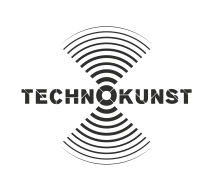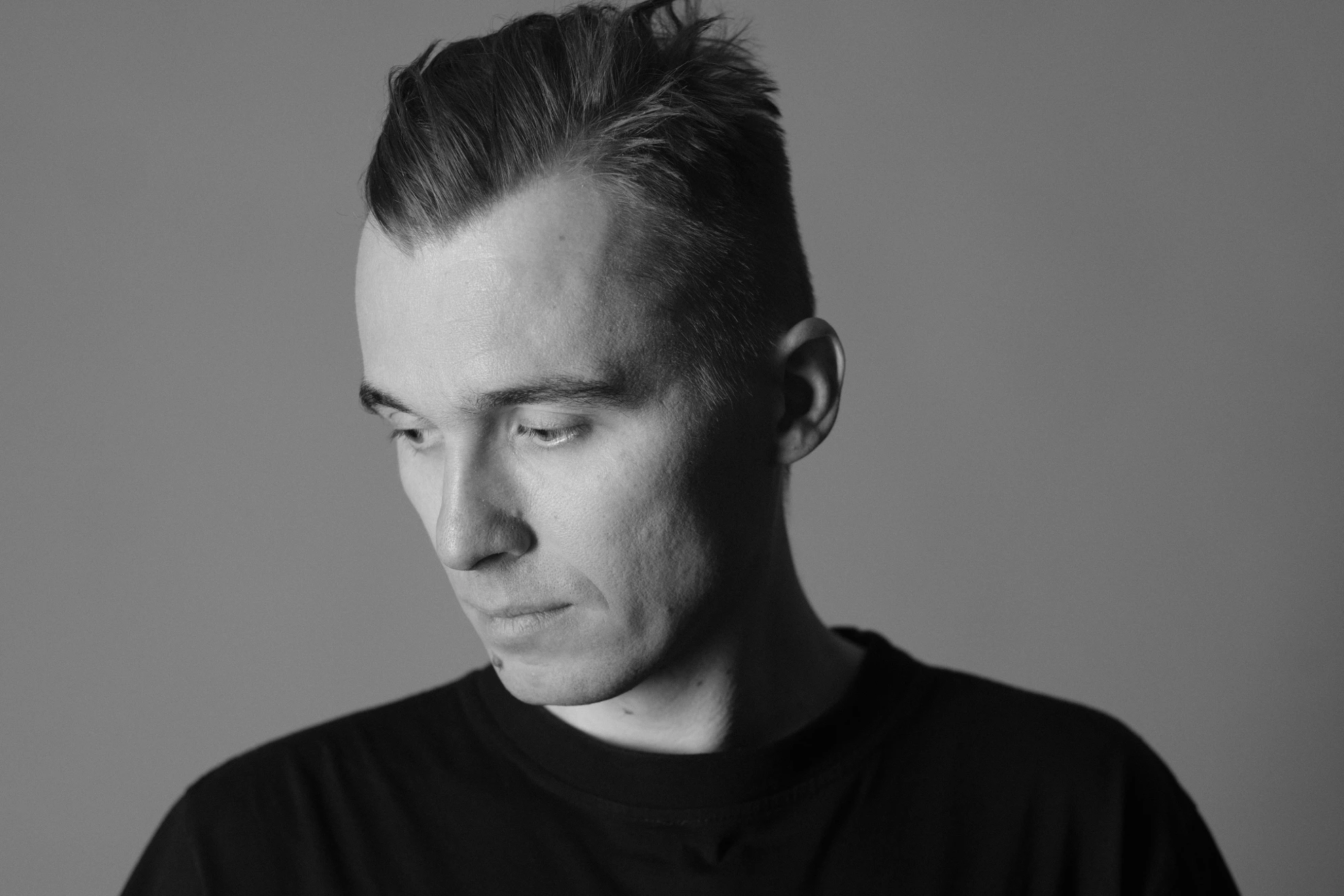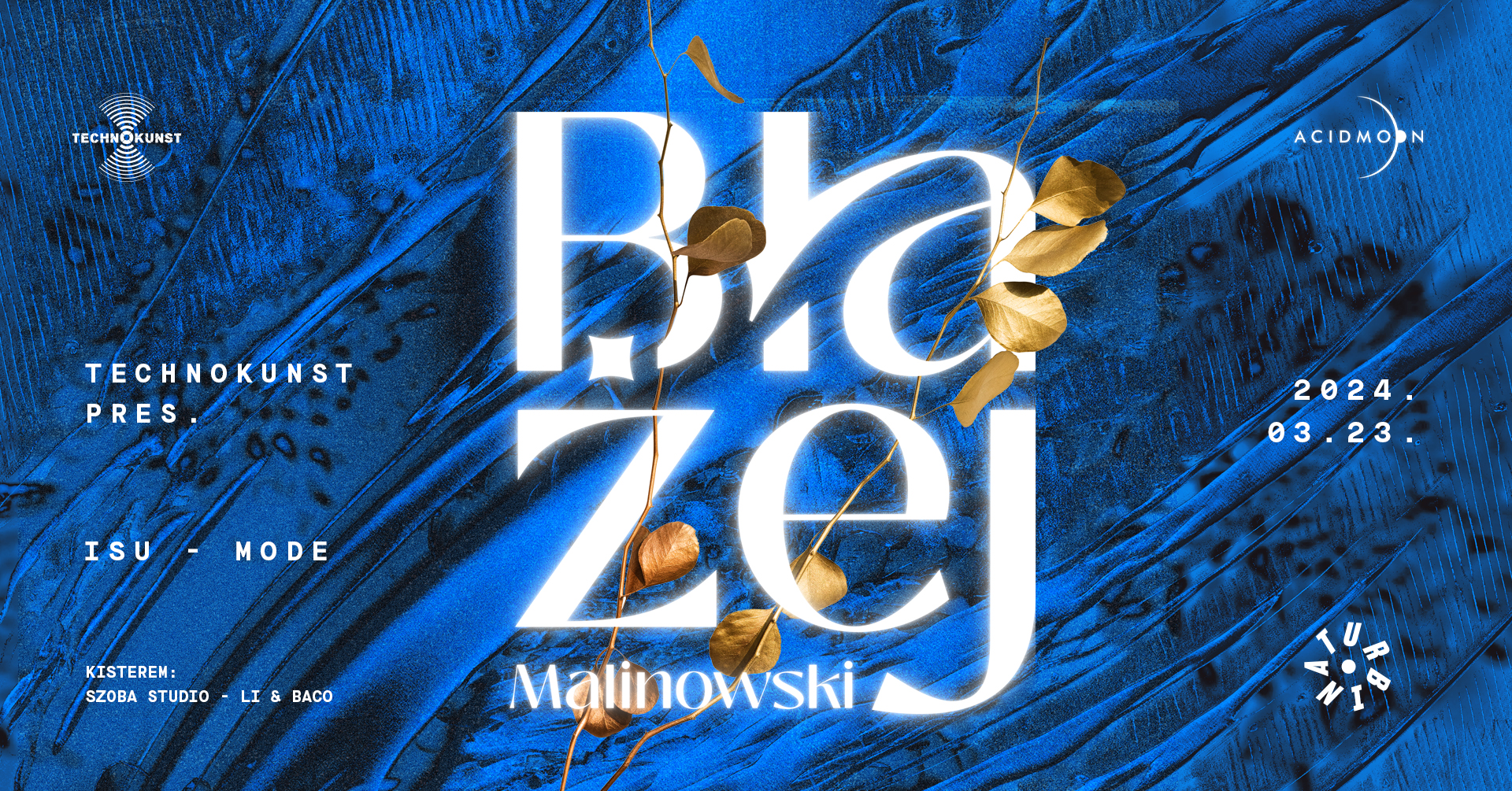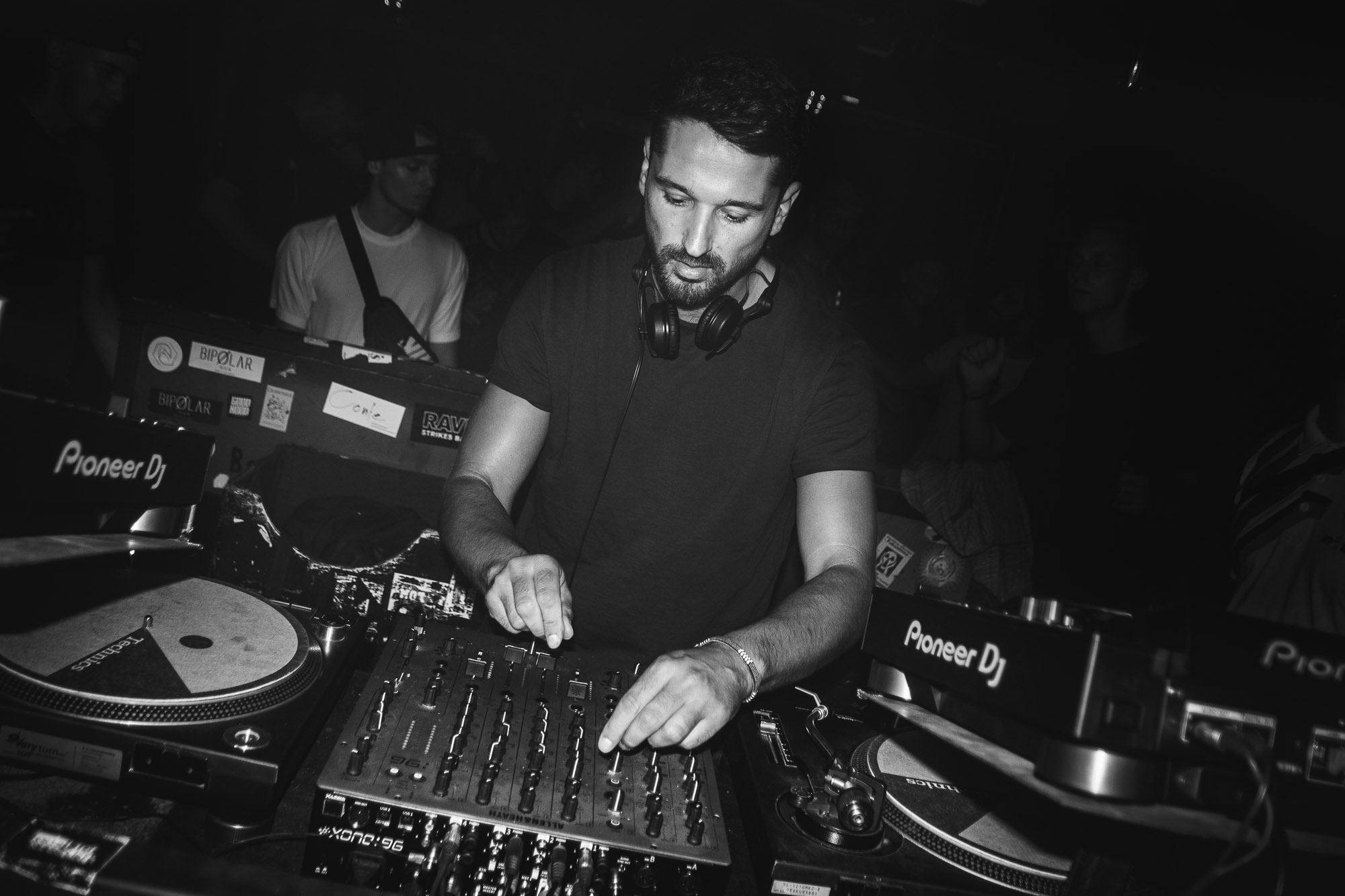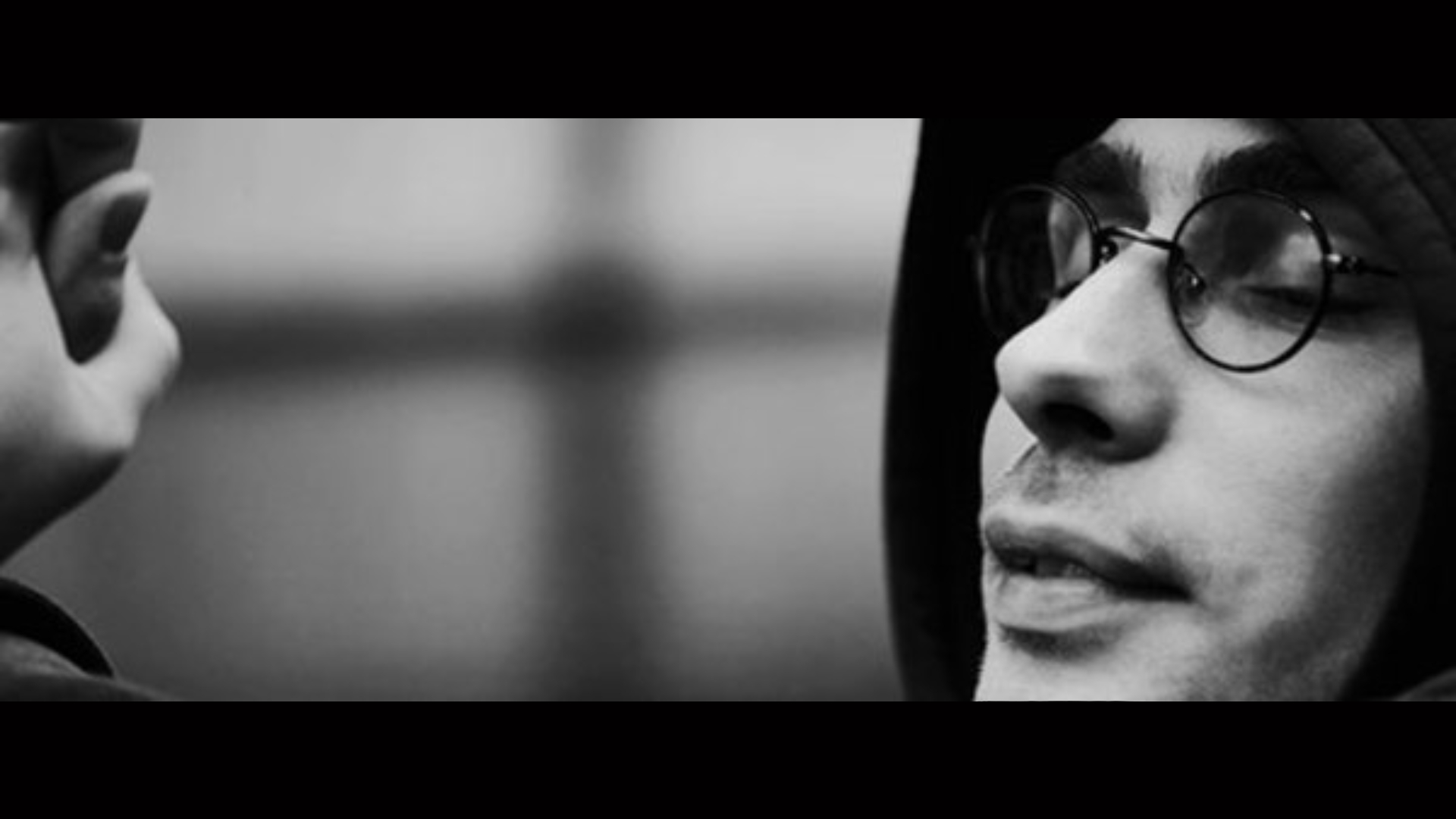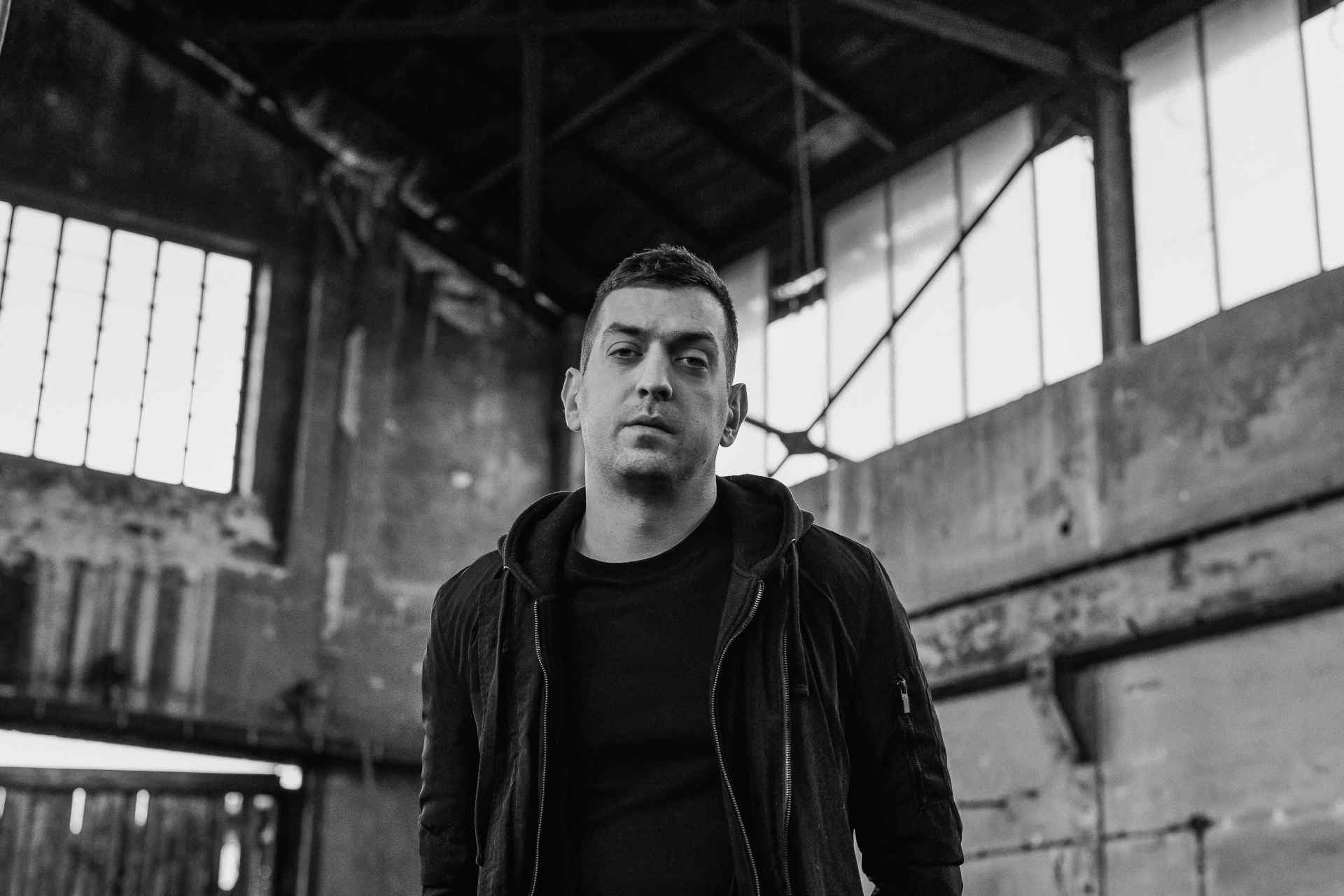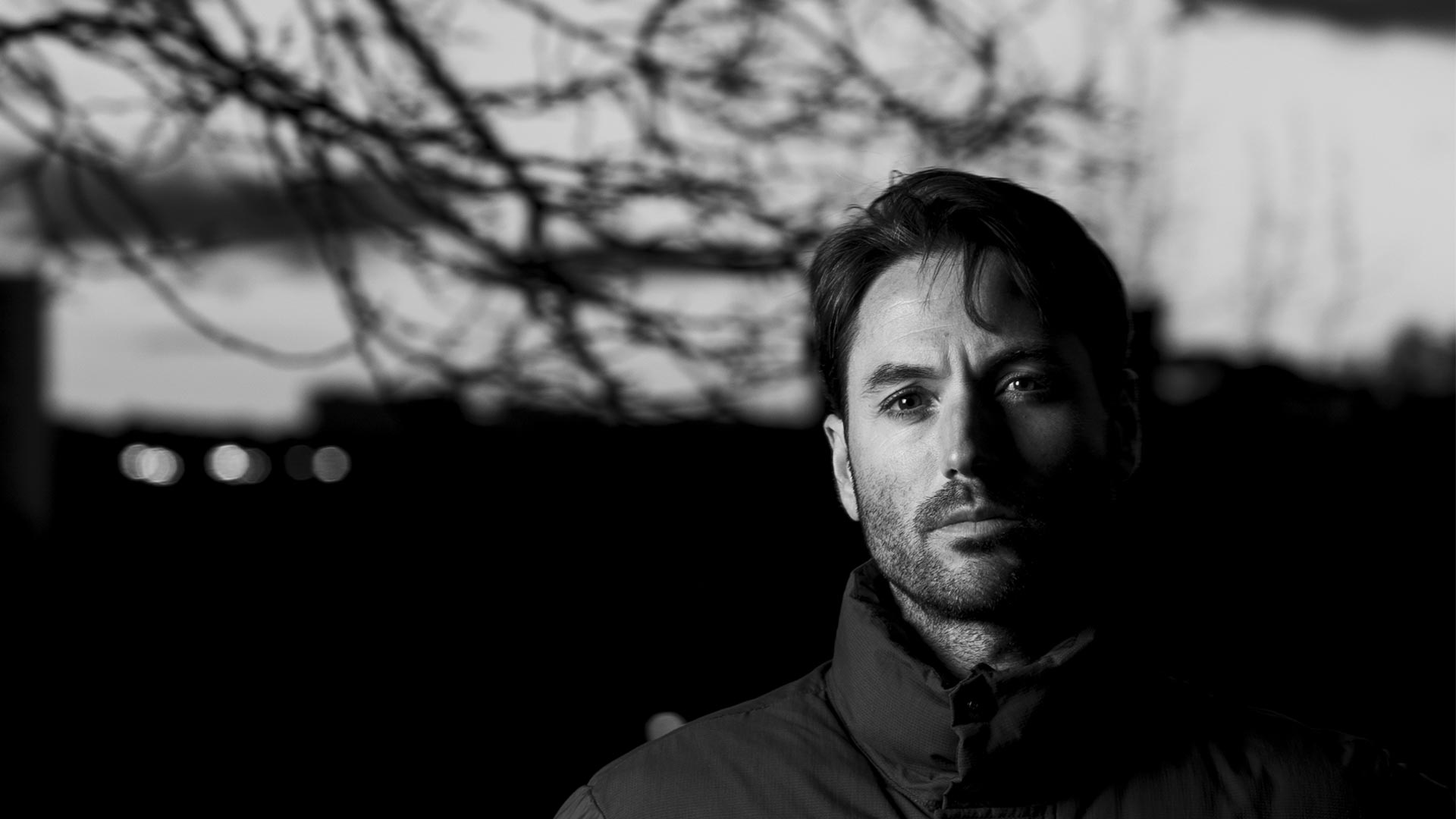Technokunst Asks: Blazej Malinowski
Hey Blazej, thanks so much for being available for this interview. How is 2024 shaping up for you, and how has the previous year been?
Thank you for having me both here for this interview and also for the upcoming Technokunst event. Last year was filled with many releases on my part, including a few EP’s and two LP’s: one solo album titled "Between Method and Madness" and another under the new Keen Distress project, which I created together with Robert Matysiak. After spending some weeks trying to figure out what I wanted to do next, I began recording music at a faster pace, which feels both natural and liberating to me. So, I have to say, I feel very good at the moment. Finalising new projects always gives me sense of emotional balance and inner peace.
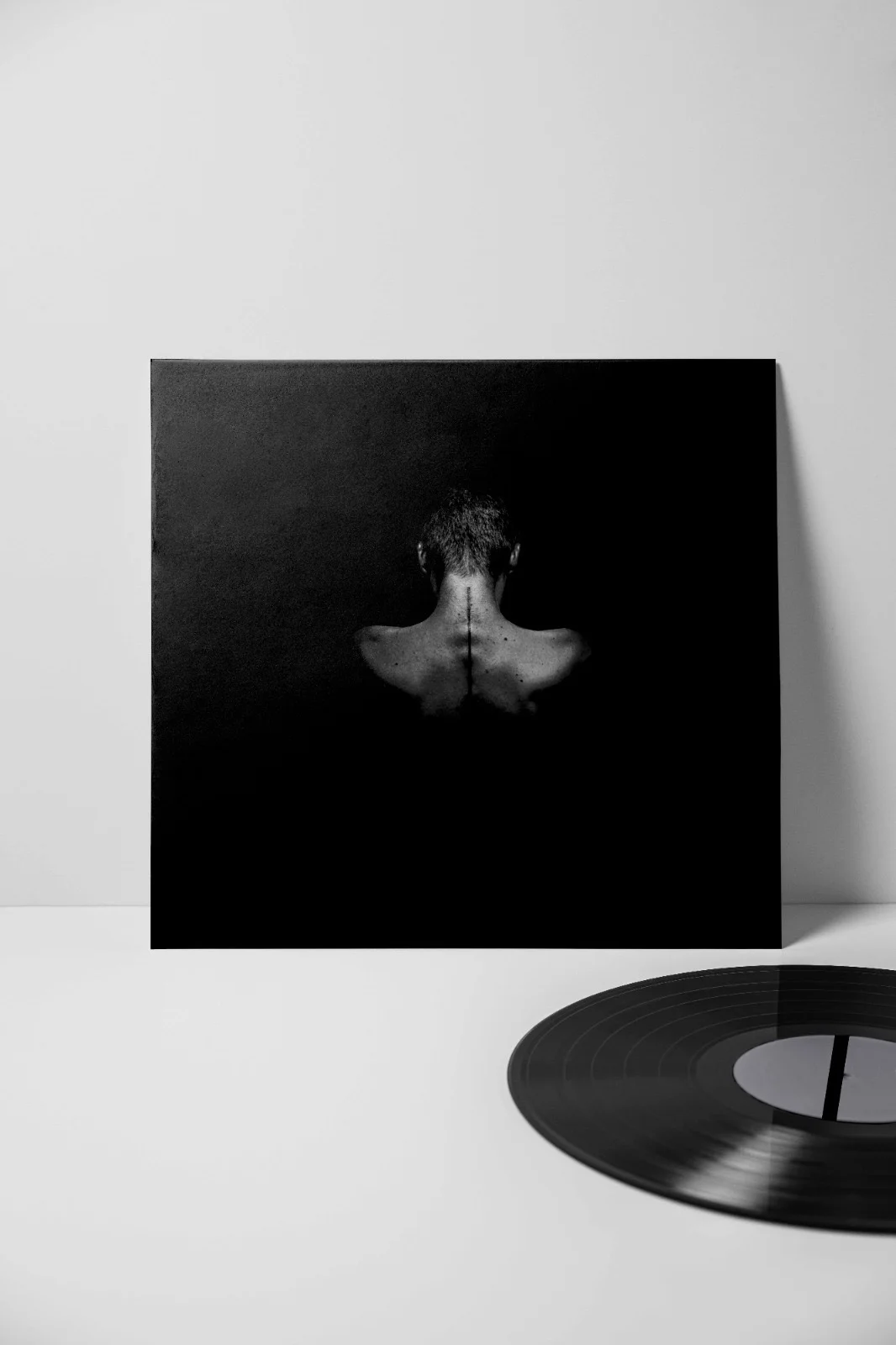
Let’s go back in time a little bit. Growing up in Toruń in Poland, what core childhood memories or experiences first ignited your passion for music, especially hearing about an early fascination of yours with vinyl records?
My earliest memory involving vinyl records and music in general is a vague recollection of listening and dancing with my mom and sister to Stevie Wonder (I still have this record to this day), probably around 1988. The turntable that we had as a family fascinated me from as far back as I can remember, but my love for electronic music and clubs came later in life. I believe it was during my first parties around the age of 17 when I began attending house events in my hometown. Additionally, I listened to a lot of jazz and hip-hop music. After moving to Warsaw two years later, I discovered proper venues and vinyl shops, and that's when my passion for it really took off. Since then, I've been trying to figure out how to get started. I made the decision to go to the USA to work there for five months, taking up part-time jobs including sandwich-making, among others. After two months, I could afford my own turntables, and I've had them ever since. It's hard to believe, but it will be 20 years in August since that moment.
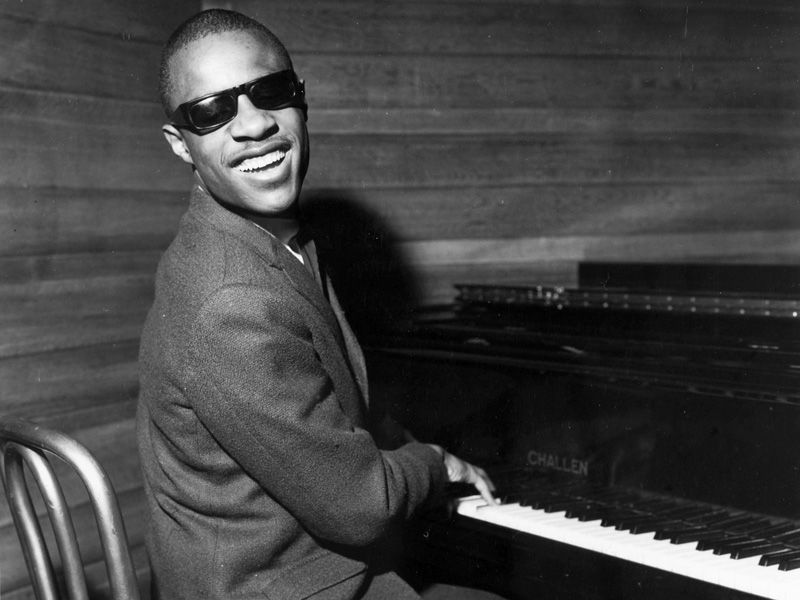
You have spent some time in the USA. How did this experience influence your taste in Techno or music in general?
As I mentioned, my short stay in the USA revolved around working and earning money for my own turntables. Towards the end of my stay, I was fortunate enough to visit the Amoeba Music store in San Francisco (I'm pretty sure it is still there). I remember being incredibly impressed by the vast collection of new and second-hand vinyl records all in one place. I ended up purchasing around 50 records spanning many genres, including music from Jeff Mills, Mix Master Mike, DJ Premier, Charlie Parker, among others. While I already had some records at home, this experience marked a shift in how I thought about my collection, and upon returning to Warsaw, I began focusing more consciously on techno releases and music in general.
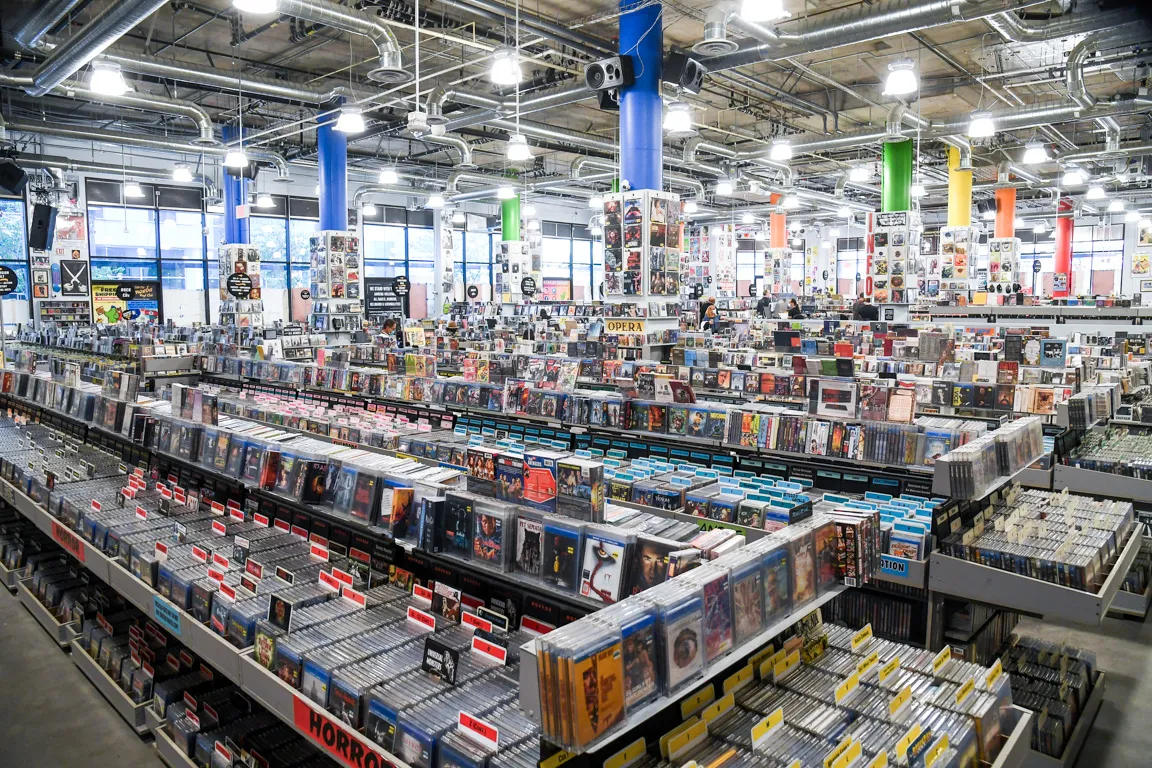
It is always hard to put feelings around music into words, but could you try to summarize why Techno as a genre works for you?
For me personally, Techno has always been and continues to be incredibly open in terms of sonic explorations. It never confines itself to being merely danceable or functional music. In my view, Techno encompasses a broad spectrum of emotions that resonate with various minds, whether at home or in clubs. That's why it remains so fascinating to me to this day and continues to surprise me on a daily basis, although you need to know where to look for it…
How is the Techno scene in Poland? Is there interference from the government and is politics embedded in the scene, like it traditionally has been in Berlin or more recently in Tbilisi for instance? Have you seen any interference in night life from political leadership in the past years?
In Poland the government is not interfering that much but at the same time it’s not very supportive especially with smaller projects. With bigger festivals it’s much easier to get the funding from the city but in general scene is build from the ground up with the huge effort from promoters, clubs and artists themselves.
You’ve been based in Berlin for some time now. Arguably it has been the best location for Techno in the past years, how are you finding your footing there?
I moved to Berlin with my family 8.5 years ago, and back then, it was incredibly refreshing to experience how things worked in the city's music industry. Fortunately, after a while, I began playing regularly in clubs here, and now I can easily call Berlin my home. When I relocated, my daughter was only 6 months old, so I discovered the city from a very different perspective. I've always prioritised my studio work, being a good father, and a partner. That's why I quickly realised that Berlin has much more to offer than just parties.
I have to say, I still enjoy it a lot!
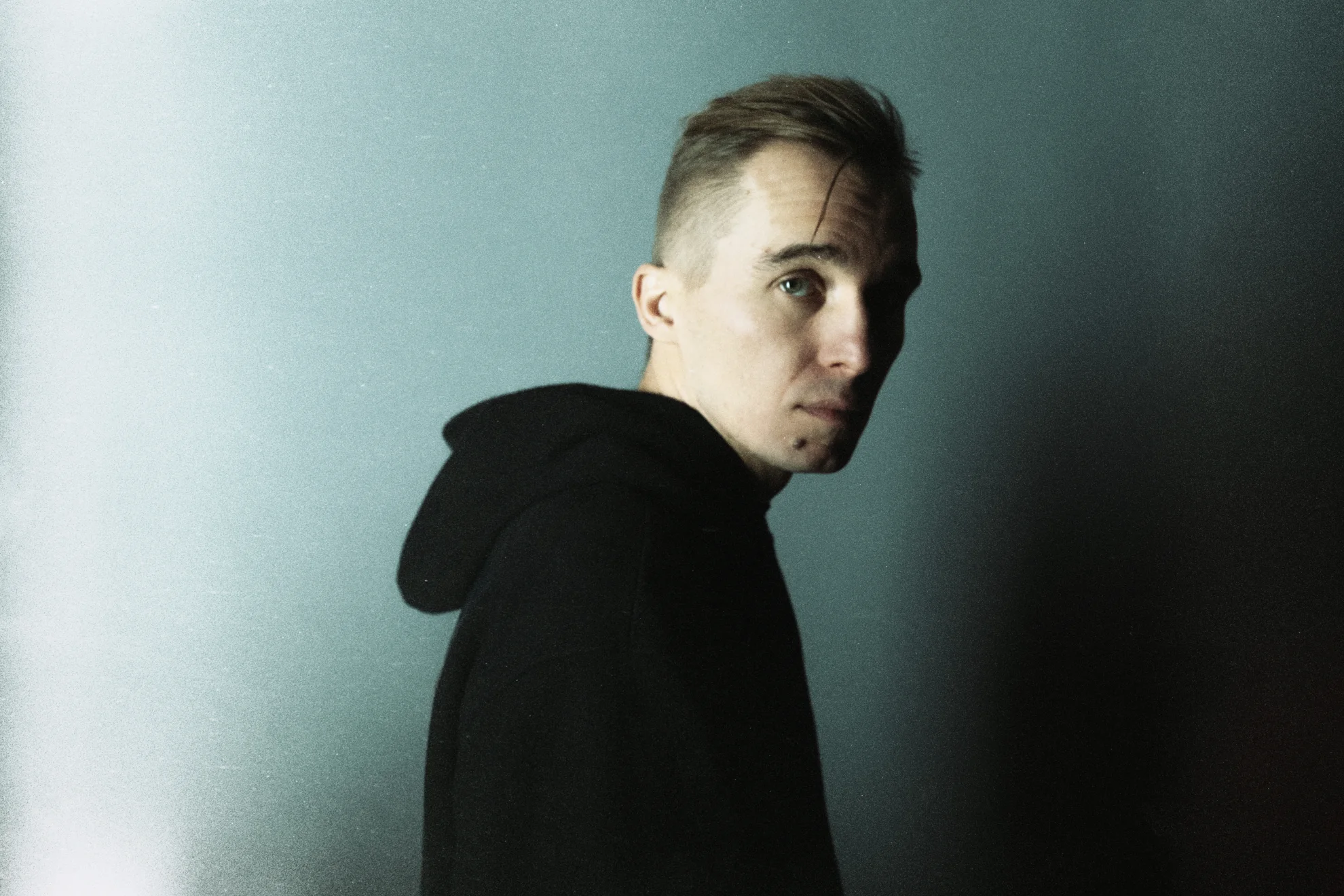
You have worked as a radio host, a label curator, a producer, a DJ and a promoter. Which role is closest to your heart and why?
Creating music will always be my main focus. It gives me drive to make everything else you mentioned. Of course it is all linked, without gigs we, as artists, can loose a connection and those special moments of sharing the music with the crowd, meeting like-minded people, and enjoying the music together. My journey with radio was quite extensive, spanning 12 years and exactly 600 shows on Radio Kampus (together with Michał Wolski). It was a beautiful experience to freely play music every Sunday, inviting artists to perform and discuss their work outside of the club environment. Creating a label was always a dream of mine, and now I could not imagine my life without it. Since I've been promoting my own events for years, it was more than natural to make them under Inner Tension name as well. As I mentioned it’s all connected and it complements each other. Working on all these aspects brings me a lot of satisfaction, yet playing in front of people energizes me enormously, and I simply love every aspect of it.
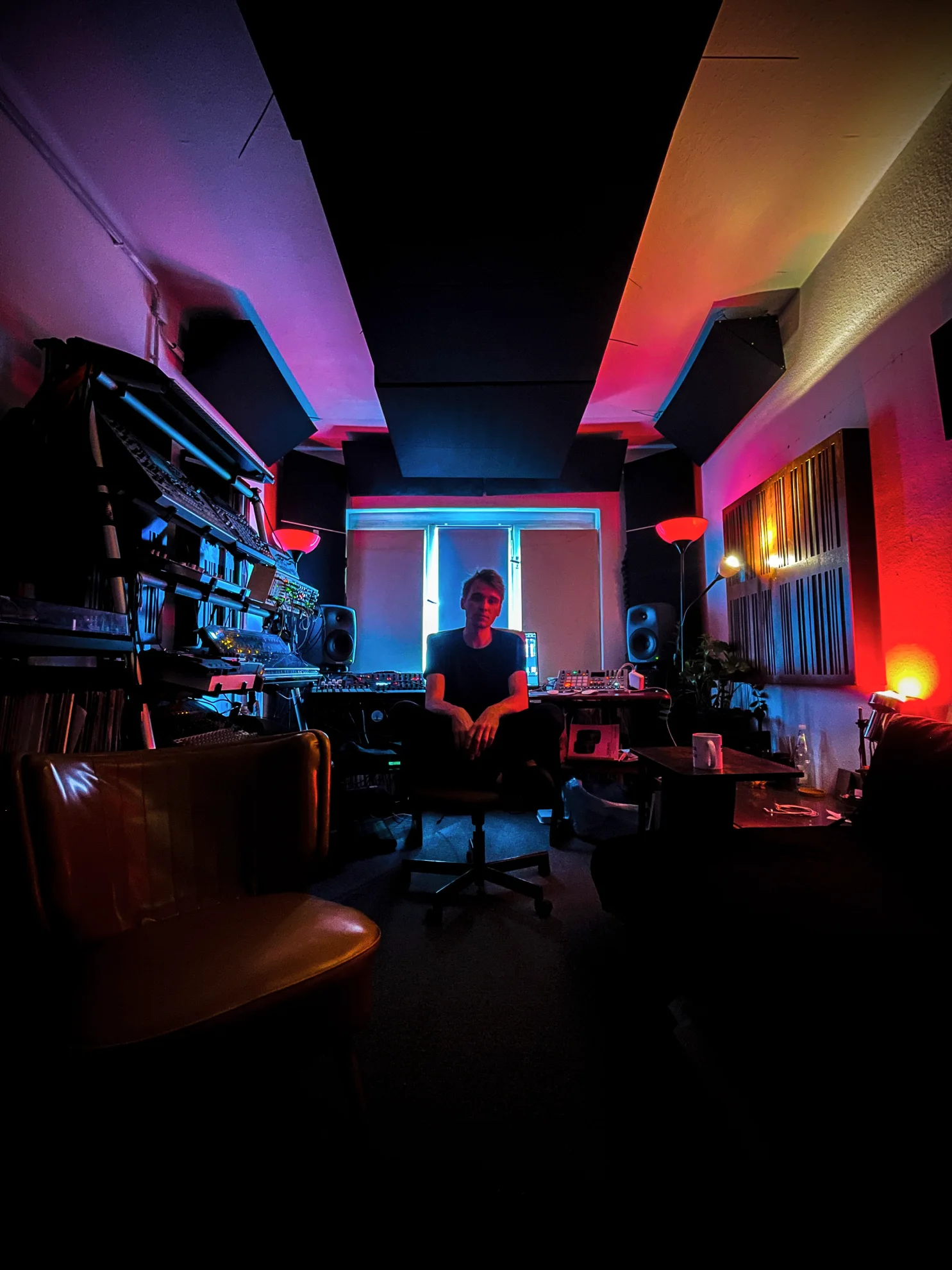
You have released on some great labels out there, including Semantica, The Gods Planet, Kvalia Records or Monday Off. You seem to be the type of person that likes to collaborate. Is there a trick to how you approach working with labels?
At the very beginning, I was quite closed off to collaboration, but now it provides me with a lot of inspiration. I never compromise my own vision, but engaging with other artists in my workflow can lead to unexpected and beautiful results. That is more on collaborating on a personal level. With certain labels, besides music, I've been able to build a specific trust, so working could feel natural. Particularly after the first record for a certain label, I can easily predict what I would like to create next. In a world where most things are consumed very quickly, I can create music that fits both the curation and my personal view on music. I have always valued those long-term connections and friendships built on a shared love for specific music, yet without expectations on both sides.
We just had an amazing event before the New Year with a good friend of yours, Claudio PRC. Have you known each other for a long time? You’ve released music together on his label, 012.
On April 26th, it will be exactly 10 years since we first met each other. Since that moment, we've shared a very special bond, upon which we've built a friendship and mutual support. Claudio is one of the kindest people I've met in the scene since the beginning of my music journey, and I'm happy to say I can call him my friend. Besides collaborating on releases like 012, we've also released music on Semantica and my own label. He will always have my respect as an artist, but most importantly, as a human being.
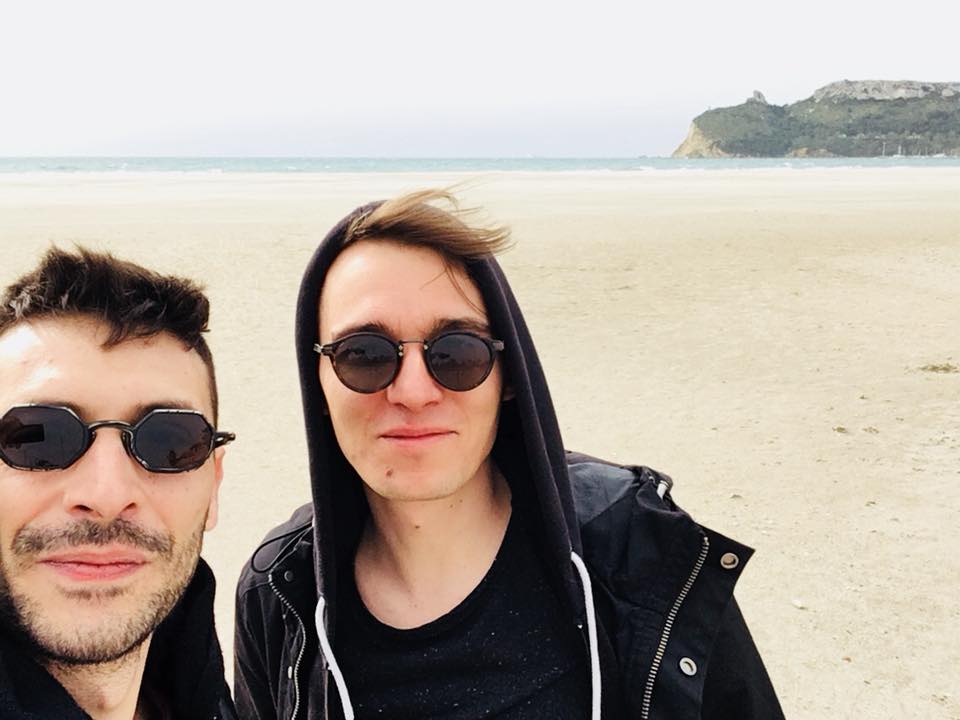
Speaking of Claudio, I’m sure you had plenty of friends play for Technokunst in Budapest already. Do you ever talk shop about promoters like us and share some insider info with each other?
It happens, especially when we go somewhere for the first time, we often exchange thoughts about the venues and events.
With Technokunst was the same although I’ve seen what you are doing on daily basis so I’m pretty sure that it would be a very special night and did not ask around that much :)
I need to add that I always wanted to play at your event and can’t be more excited and ready to experience it!
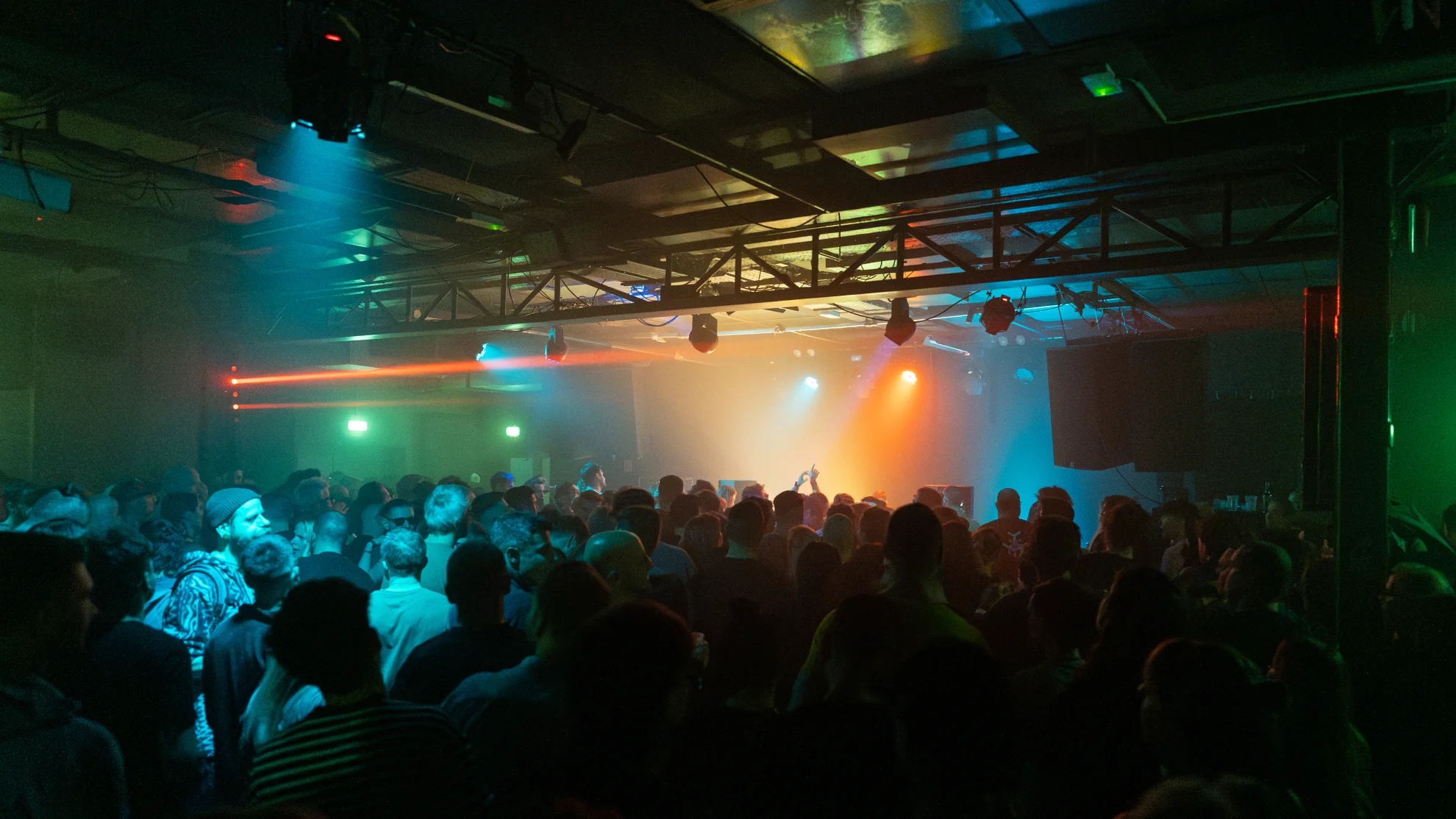
We have pleasant memories of your set at Alkototabor in 2021. What changed since in terms of the type of sound and sets that you play?
It always depends on the party, sometimes it might a bit more intense but not in terms of bpm’s but more in layering and tracks themselves. The core still is the same and it’s about the unspoken connection that can be created between the crowd and myself.
Deep yet danceable.
Also in 2021, you have launched your own label, Inner Tension. This seems like a significant point in your life as an artist. What was your vision for it and how do you curate the output?
Inner Tension is a direct reflection of my taste in music, and as I mentioned, it was my dream to curate my own label on my own terms. Like my own music, each release has to feel right at that specific moment. Initially, I focused more on my own productions, but currently, I'm finalising the first major VA release featuring very inspirational artists I know. Many of them I met or discovered while touring, and I'm extremely excited to bring them into the label.
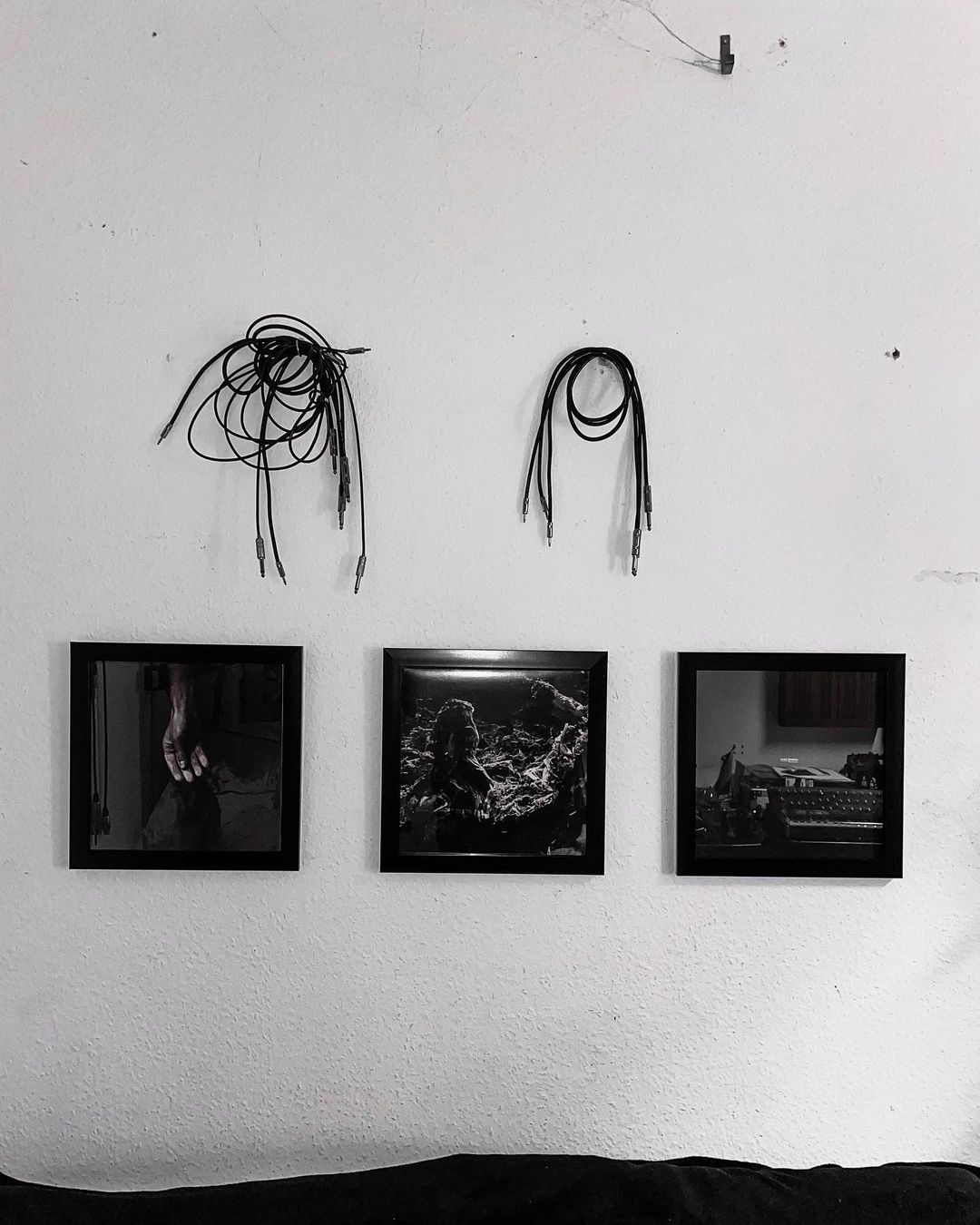
Can you tell us a little bit about your ‘Why So Silent?’ project? How did this concept come about, and do you have any plans for future events? Are you doing any other type of work as a promoter in your home country or in Berlin?
The Why So Silent? project is currently on the back burner, but I'm trying to organise at least one event a year. To date, I've hosted 44 events under this concept. It involves a unique fusion of live electronic music and experimental silent movies. From the beginning, I've been drawn to the idea of inspiring my guests to prepare live or DJ Sets to specific titles, and I must say it has attracted many people, especially in Warsaw, where I've held most of the events.
Talking about production - in terms of studio work, what are your favourite tools for creating music and preparing live sets? How do you choose between hardware and digital instruments? Care to show some bits of your studio?
To be honest, I completely stopped thinking about it. Over the years, I've collected many hardware instruments along with digital ones. When it comes to my DJ sets, I've played with both vinyl and digital formats. For my music creations and live performances, I've used both hardware instruments and Ableton. Ultimately, I choose what feels right in the moment especially in terms of studio and working on my own music.
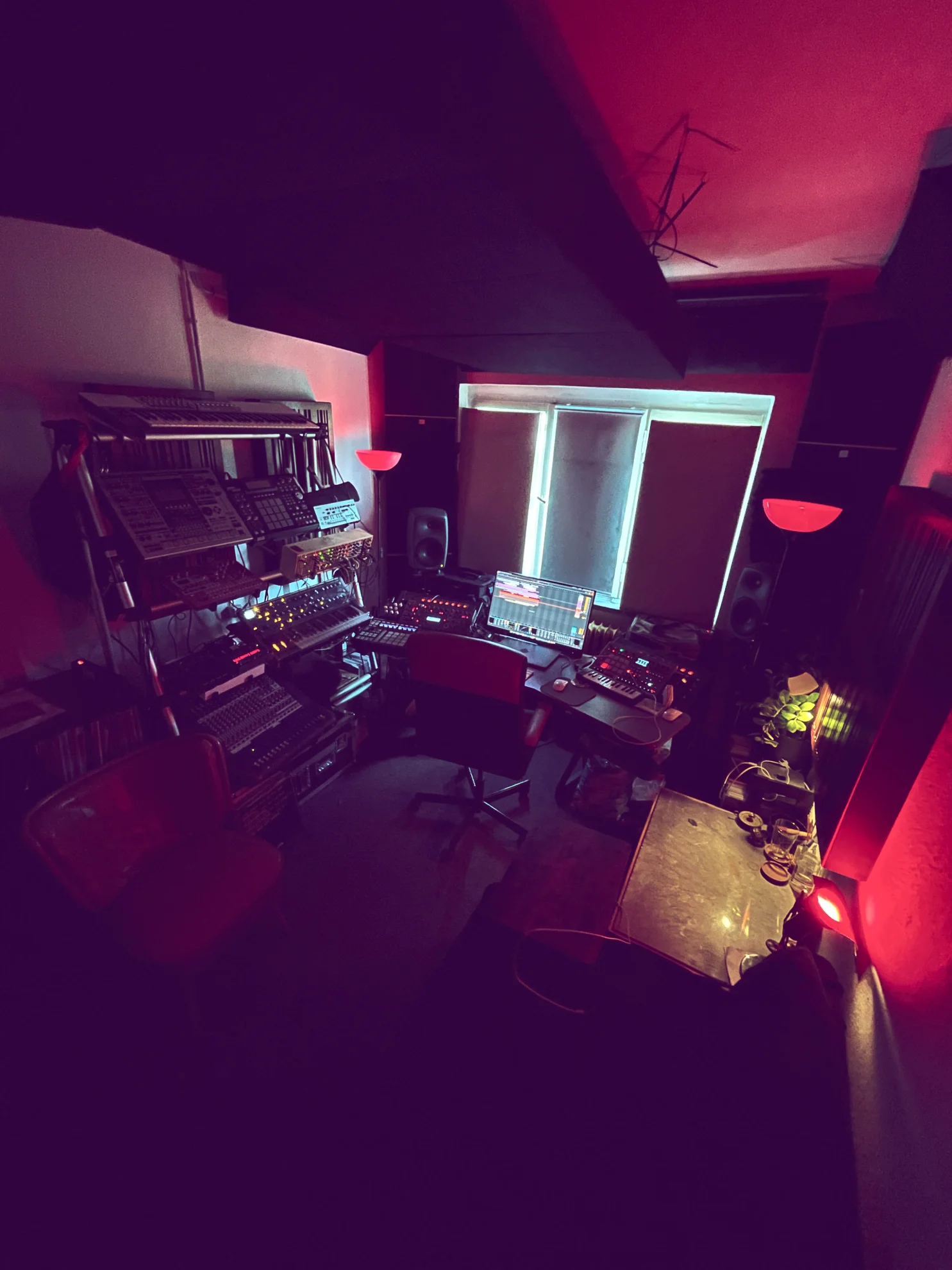
How do you balance hypnotism and “deepness” with usability in a club environment, and how do you change the priority of these aspects? Where do you think is the deeper sound of Techno headed?
Personally, I would describe it as “focused”. Being on the dance floor or in the studio completely immersed in sound. For me, that is the key to everything, regardless of the words used to describe it.
How is 2024 looking from the perspective of scheduled releases?
I'm currently working on a big project, and I have a very specific plan for the next chapter. However, as usual, I prefer to focus on sharing the things that are right in front of me rather than discussing the things that are still in the making.
Still working. Still creating. Still caring.
Thank you.
Blazej Malinowski.
Technokunst asks: Oliver Rosemann
Hi Oliver, thank you for answering our questions!
Can you tell us a little bit about your background and how you got in touch with Techno? What are
some of the initial influences that shaped your sound?
At that time electronic music was new and came over me like liquid night haha. The first things I
really celebrated were Depeche Mode, The Prodigy then Labels like Communique and Dance Mania
or Plus 8 and so on. I was influenced by everything that was released in 97/98/99, I think. But also
from technology, computers and science, like quantum physics, which fascinates me very much.
How was growing up in Leipzig like from a clubbing perspective and how have things changed in
the last few years?
Growing up in Leipzig wasn't bad. We had good illegal parties, clubs and events. E.g. of course the
"Distillery" and also the "10/40" But it seems to me that partying used to be more carefree back
then. Without the Internet, for example, and fewer things that could be discussed to the ground.
Back then there were more bubbles, maybe more individuality, because trends took a long time to
get from one place to another. So there were simply several different trends from place to place.
That’s interesting! Today, everything is global, everyone has access to the same trend through the
Internet. As a result, many people do the same thing and many things become boring. For example,
the musical individuality from one city to another. Chicago sound, Detroit sound. I don't know if there
can still be such differences today. But maybe I'm wrong. Just my idea at the moment when I think
about it. Also of course the internet has advantages, haha.

How do you think your “sound” has evolved over time? Is there a signature that you can attribute
to your productions?
I think my influences have remained noticeable, but of course the quality of the sound has improved.
On the one hand you learn a lot, you gain experience. But at the same time, the tools you have at
your disposal are getting better and better.
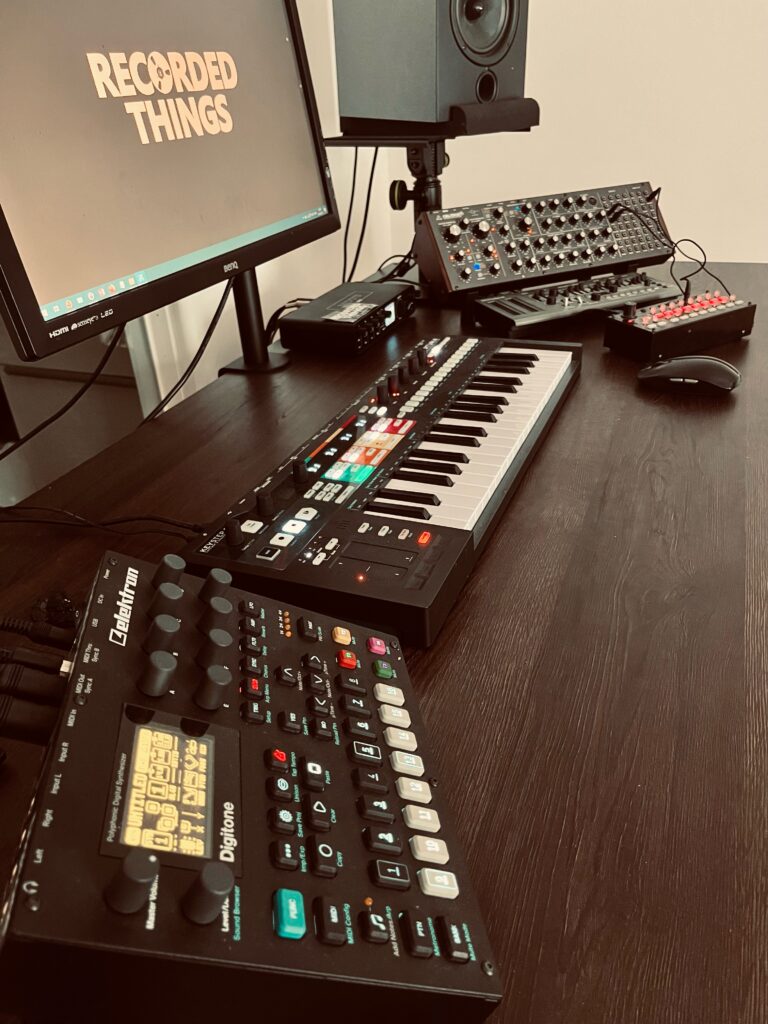
Is there anyone out there who helped you grow and learn, or did you pick it up all by yourself?
How do you find working with other producers in the studio? Specifically asking because it seems
you have really found the common ground in production with Pfirter.
I taught myself everything. But that's because of the way I live. I love exploring things, experimenting
and always finding new ways by my own and perhaps discovering the undiscovered. It's been that
way since I was a kid, and not just in music. Collaborating with other artists is always very gripping
because it takes things in a different direction. It's very interesting. With Pfirter, it's a perfect
direction. I love this collaboration!
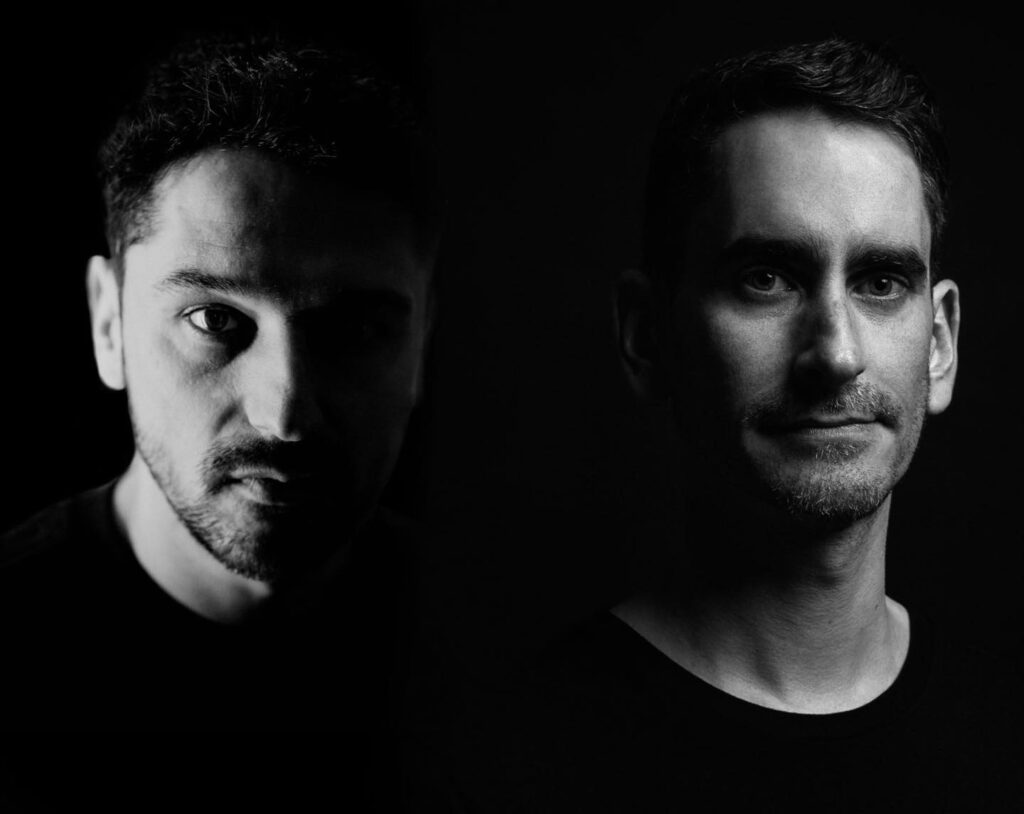
We see that your label, - Recorded Things - is mostly a means to release your own music with full
creative control, but we also see some guest appearances - such as Sweden’s Lakej or Spain’s
PWCCA… How did you arrive to the decision with your friend Sebastian to start the label together,
and how do you curate the output?
It's more of a means to release my own taste in music with full creative control. PWCCA and Lakej are
a very good example of that. I love their music! But stand fully behind every release on the label. All
stuff that I would play in sets as well. Starting a label has always been in my head and with Sebastian
we finally started the adventure.
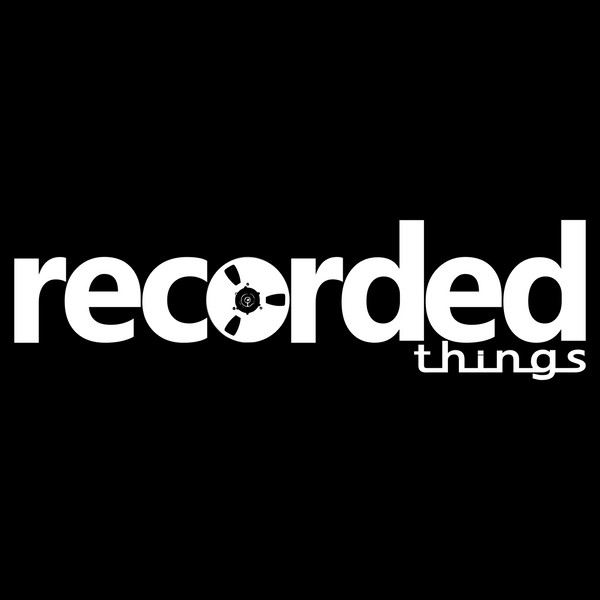
Is the name of the label a reference to recording tracks live, in one go? Sort-of how for example
Mike Parker has been working, straying away from a more widespread method of production
where tracks are built up in a DAW program?
No with the name i just wanted to express that i don't want to serve a special genre. it's my
understanding of techno. And it names the purest form to make music audible for someone else
when it's not live. You have to record it. And so it's Recorded Things.
Technokunst is a collective of artists who embrace the tradition of vinyl dj-ing, so we are happy to
see labels like yours still release records. Is it important for you to keep records going, or is it
merely a nod to some DJs and collectors out there? How do you decide on what to press and what
to keep digital?
We definitely wanted to offer vinyl as well. I always really liked having something in my hand. To be
happy to unwrap it, put it on and listen to it. I'm sure this will create a different perception. Recorded
Things will mainly feature the release of the "Season" series on vinyl.
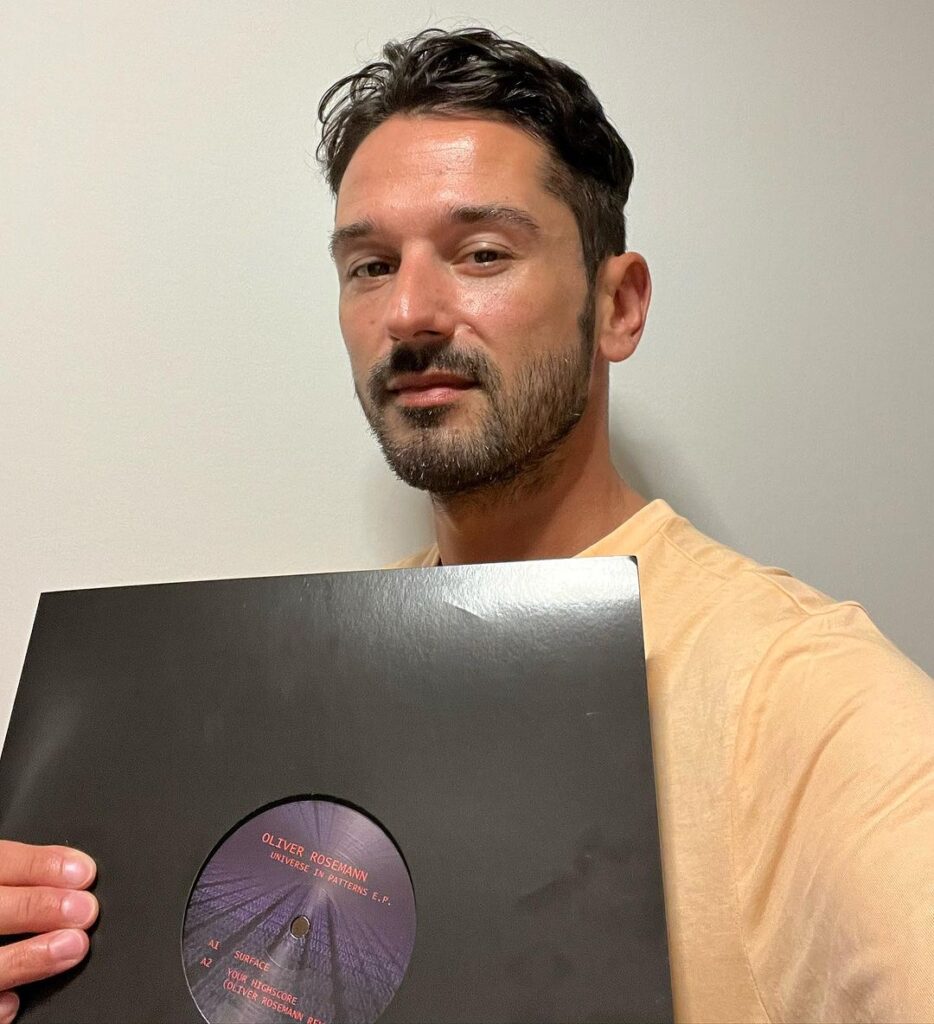
How does your production setup look like? Do you prefer using software, hardware, or a
combination of both? Can you show us your studio and your favourite tools for production?
I use things from both worlds, as I want to explore both. Currently I use the Elektron Digitone, the
SH01a, the Behringer Neutron, the Keystep Pro, the Drumazon 2 as well as the Roland Cloud 909.
Xfer Serum, Massive X and a few more.
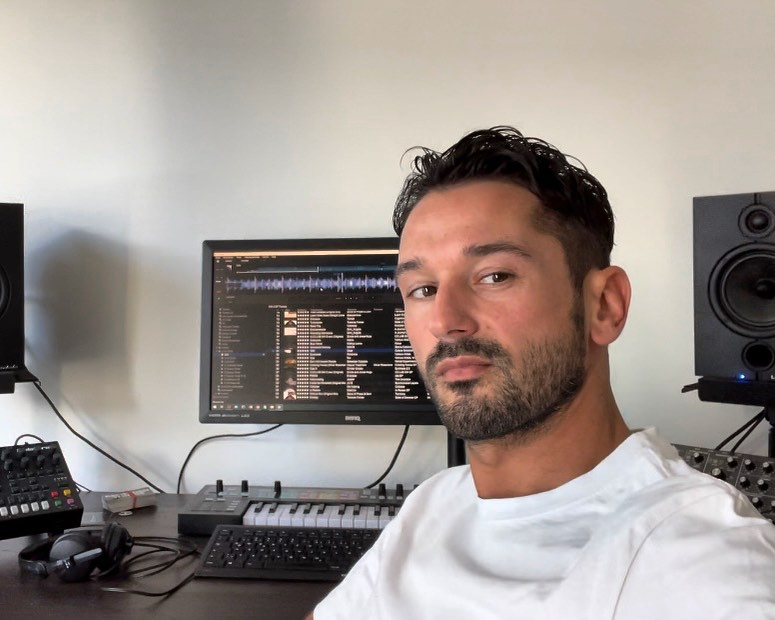
You are playing on a Technokunst event on the 21st of October. What are some of the tracks that
have been staple parts of your sets, that those attending can expect to hear?
Yes, that's right and I'm really looking forward to it. I also like the name "Technokunst", because
Techno is art and should always be!!!
Right now I'm pretty much always playing Animal Noise by Endplate! A monster track. But I also
always play some personal classics from the 90s from my record collection, which I digitized for this.
But what exactly I play, I can't say. I never prepare too much. I have my bag packed and I always let
the vibe in the club guide me, from start to finish.
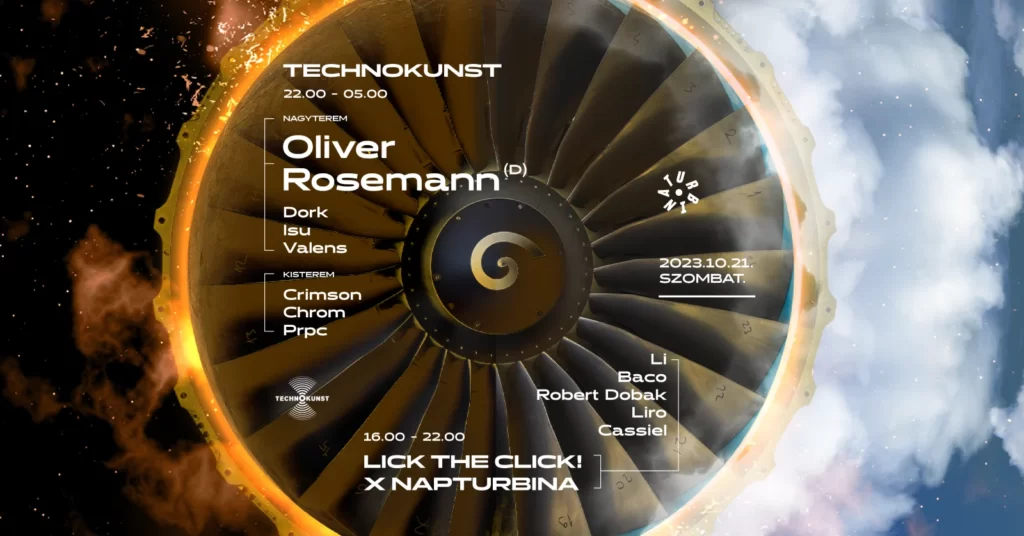
Can you share some of your favourite music, - perhaps not from the realm of Techno - that you
wish readers of this interview heard?
I like many things. One of my own weaknesses is probably to decide for anything. So now after 2
hours of thinking about which song or band to give you, I decided against it. HAHA. I like 90's hip hop,
the raw and dirty style. Also 60’s / 70's psychedelic rock. Would have loved to have been at
Woodstock! Also Nirvana (Now I named a band exactly^^), Roots Reggae and Dub Reggae.
OK 3 Songs are maybe George Harrison - Art of Dying,
The War On Drugs - Come To The City
and
Gravediggaz - 2 Cups Of Blood. I just picked them random from my playlists.
Technokunst asks: Sleeparchive
To start out I would like to go back in time and ask a little bit about how you got involved with
Techno and music production in the first place. I have read that you were into EBM and things
evolved from there. How did you discover the type of electronic music you were into and what
artists or sounds shaped you as a producer?
Around the age of 10 I started to listen to Depeche Mode a lot. That lead to Front 242 and Nitzer Ebb and
after that I bought an album by Front Line Assembly. It only took another couple months and EBM was
my favorite music and most of the music I bought was related to that scene. In the mid 90´s EBM started
to sound different and it was getting harder and harder to find music in that scene that I enjoyed. So I
went to check out other genres and ended up listening to Aphex Twin, Autechre, Boards Of Canada and
related. Sleeparchive was very much inspired by the music of Mika Vainio and Plastikman but I was not
much into Techno at this time. Of course I got in contact with Techno because from the mid 90’s I bought
99% of the music I listened to at Hard Wax, but I never liked Techno much when it was played in the
shop. Maybe I was never in the shop when they played Regis or Jeff Mills, but all this I discovered after I
started doing music under the name Sleeparchive because people told me to check these artists because
I might like it.
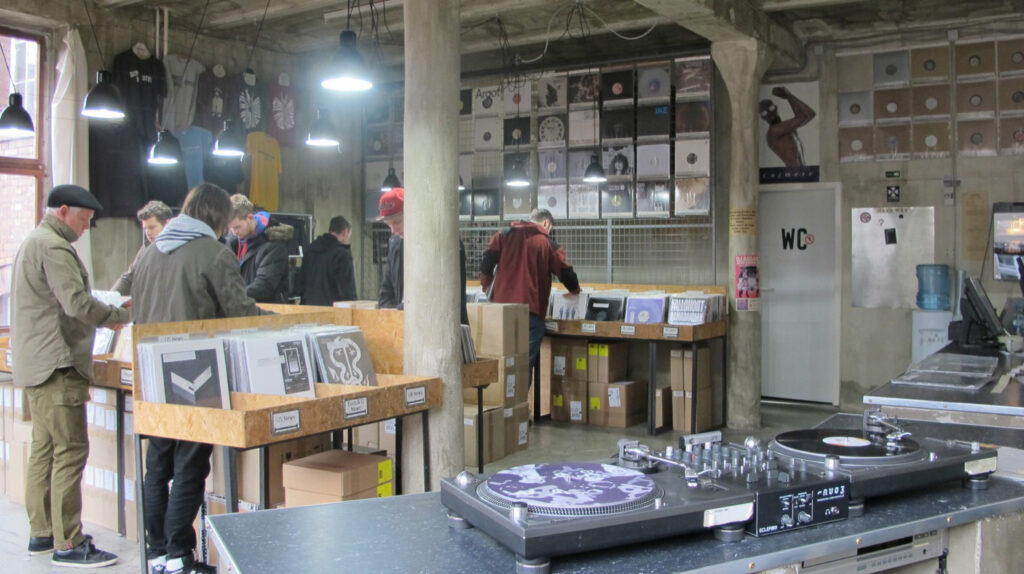
Berlin must have been super exciting in the 90s. Do you have any fond memories of events from
that era? Perhaps from Tresor - where you've also released some of your work?
I was not into Techno in the 90´s and I still do not enjoy much Techno released before 1996. The first
time I have been to a Techno club was the first or second new years eve party at Berghain. That was also
after I released my first record as Sleeparchive. Berghain was the first venue who asked me to play live,
so I thought I should check it out. My connection to Tresor came much much later. I have never been to
the old Tresor but when I have to think about a venue I enjoy the most these days when I am in Berlin it
would be Tresor.
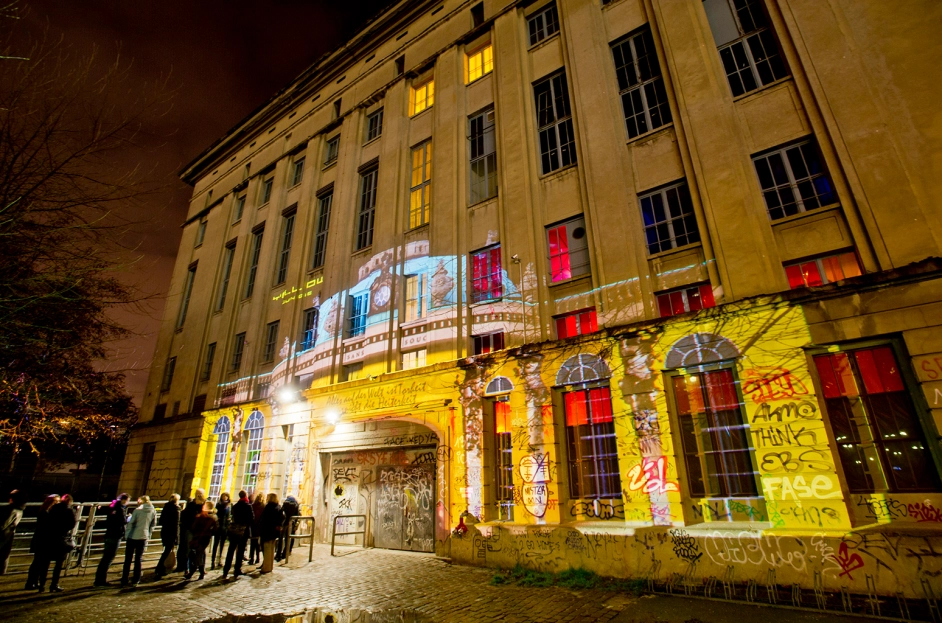
Where does the name Sleeparchive come from and how did you decide on starting your (selftitled)
label? Given that you almost exclusively release your own work, was it full creative control you
after?
The idea for the name came from a friend. But I can’t remember how she came up with that word. I only
remember that I instantly liked the sound of the word and how it looks written. When I started the label, it
was not because I wanted to release other people’s music, only my own. I find it very boring to release
music by people who already released music on other labels or have other labels they work often with.
Some of my friends do fantastic music, but nothing that would fit the Sleeparchive label.
Your releases are mostly presented as super minimal, stamped, no frills - no info type deals. This
ties in nicely with the raw/heavy but very minimalistic loopy concept of your music. Can you talk a
little bit about the aesthetic of the label and how it changed or remained over time?
I did not expect to sell many records when I pressed the first 500 copies from the „Elephant Island EP“. A
blank cover with a stamp was just the best way to save money. Of course I enjoy simple things and if I
would do printed covers they most likely would look similar but the main reason for how it looked was to
save money.
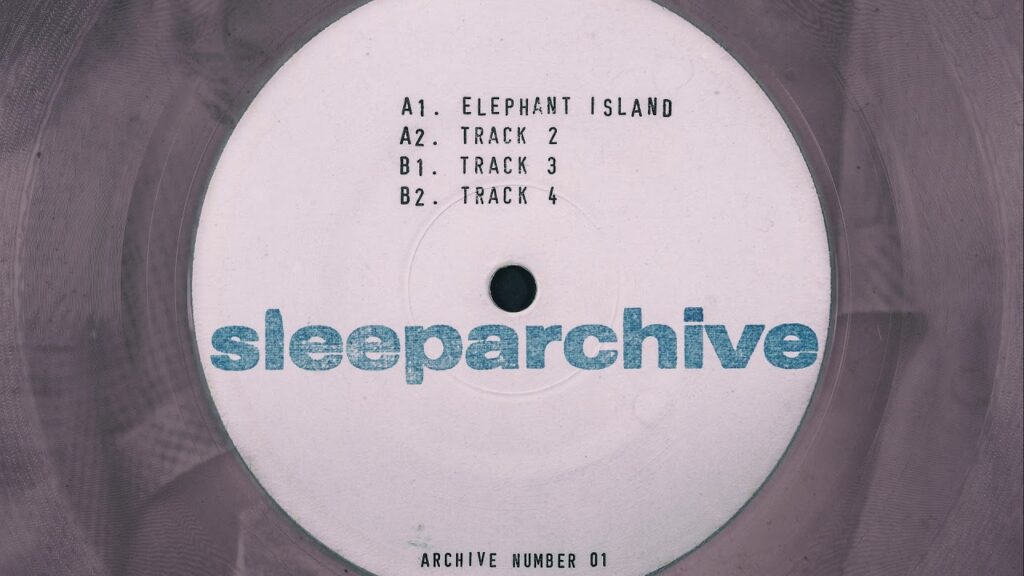
How did you come to the decision to cease operations of the Sleeparchive label and subsequently
restart releases, e.g. on your ARCHIVED series? What is the official status of Sleeparchive as a
record label today? Discogs still lists Hard Wax as your distributor. Are you still active with it?
My relation with the shop ended when I stopped working there and moved to Copenhagen. The last 2-3
years I worked in the shop I also did not buy much music from them and my records also did not sell well anymore. For around 2 months I recorded many many tracks after a 2-3 year break. Some of them ended
up on the „Trust“ album. But because I had many more left, I asked a distribution in Berlin if they might be
interested in doing a little series of records. They said yes and so all of the tracks which did not end up on
the album ended up on the Archived series of records instead.
Technokunst’s DJs are particularly interested in vinyl releases as we all play vinyl. Do you intend
to keep pushing vinyl records?
No. Record sales are to slow these days and I don’t like to wait for a finished product for 6 month or
longer. I really much enjoy to finish a track on a Saturday morning and put it up online the same day. And
I don’t have to worry if someone buys it or not.
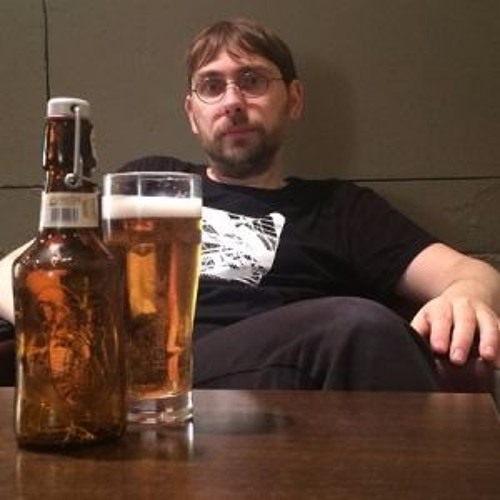
Given that you've started producing in the 90s I bet there is heavy reliance on using hardware.
Has your workflow changed by much over the course of the years? Would you ID some of your
favourite gear for production?
The first Sleeparchive releases I did with Propellerhead Reason and at that time I did the percussions
with Rebirth. In the last 10 years I do all my sounds with the Roland SH-101 and arrange everything in
Ableton Live. I also use the drums (909, 808 and so on) you get with Ableton Live.
I was never much interested in synths. Working on a computer I enjoy more... Not only because the
studio does not need much space but also because i can take the studio with me wherever I go. But I
don’t like 100 open windows when I work, so I don’t use any plug-in.
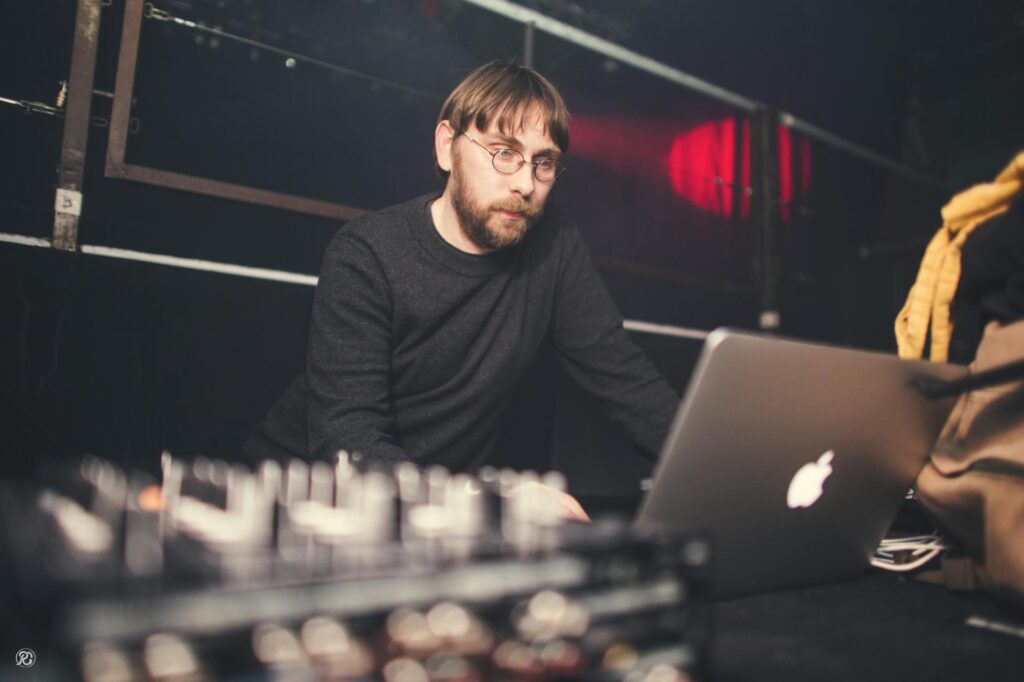
Do you ever DJ or are you purely into playing your own stems live?
I DJ’d a little while, but also with Ableton Live. But it did not take too long to realize that I don’t enjoy
playing other peoples music, so I stopped this. I have more fun jamming around with the hundreds of
loops I collected over the years.
How did things change when you became a dad? How easy do you find navigating parenthood
with gigs and production? Do you ever bring your little one on your events?
No, I would never bring my kid to a gig. Kids in that age should sleep at night. Our kid is also more into
guitar music and a bit bored by the the kind of Techno I do. I also have a regular day job these days, so
there is not much time to make music because I also started reading again. But over the years I lost the
interest in doing arranged music anyways. Most of the time I record little loops and if I find time on the
weekends or evenings I jam with them to see what fits in case I get booked somewhere.
Are you exploring music production in areas other than Techno, or are you purely into this genre
for now?
Its very rare that I listen to techno at the moment and if it is always the same 10 records by Regis or
Stanislav Tolkachev. Most of the time i listen to Indie guitar music and very quiet contemporary classic /
jazz related music. But I can find in mostly every genre of music something I like. Except metal music,
which I did not like when I was a kid and still I haven’t found anything I enjoy in the genre.
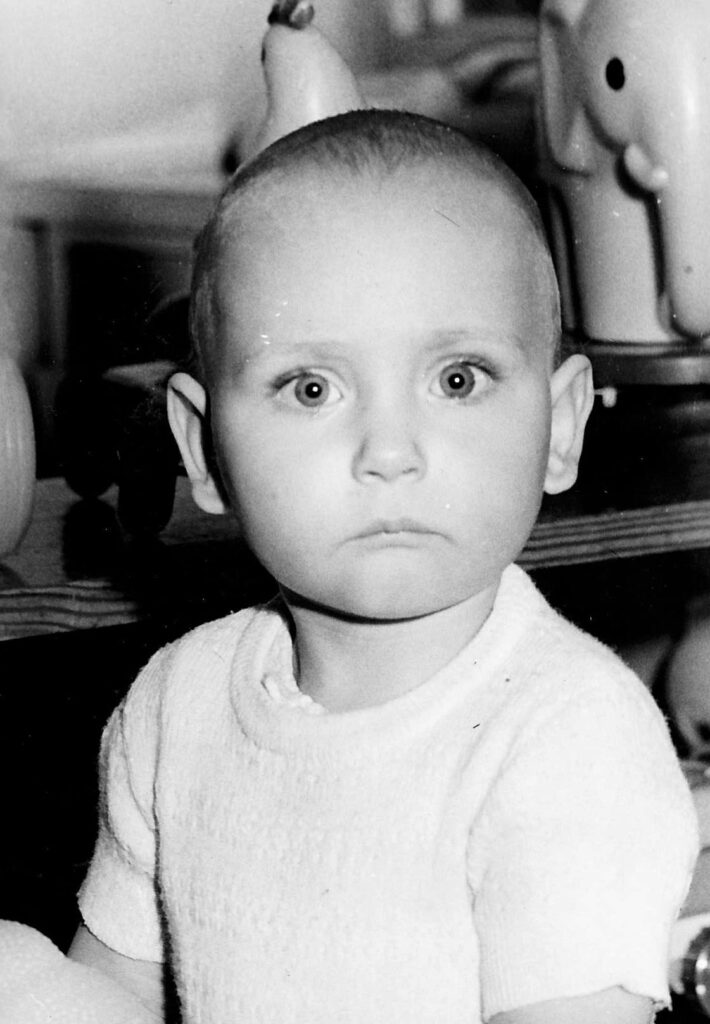
Technokunst asks: Volster
Hey Marko, thank you so much for talking to us!
I would like to go back in time a bit and ask about your past. Your path on Techno music seems to be really interesting, given that you are from Croatia, where - similarly to Hungary, the scene was not always a given.
How did you end up listening to Techno and what are some of the initial influences that shaped your taste in music?
My first introduction to Techno music happened way back in 1999. It was through a local event organized by one of the beat DJs and promoters from Osijek, DJ Sly. And as a matter of fact, underground subculture of every kind at that time had quite a support from the city officials and this event was no exception. So, through my high-school teacher that also was my drama class teacher I managed to get tickets for the event as we did a lot of performances for city council too. So that was a very interesting way of getting into techno music I always thought. That drama class really paid off, haha.
When did you start DJing and producing? Have you had any help in the process? What are your preferences while playing? A more intimate club setting, or larger venues and festivals?
Not long after just attending events, someone from my friends got some turntables and couple of house records. So, we kinda mixed with those for a while until I got couple of techno records bought for me from Vienna I think. Some friend of a friend went there regularly for shopping and so I put up some $ upfront and asked to get something good. I didn’t know what I’m going to get and it was a pure luck to get Oliver Ho – Mutate and Survive and couple of Primeval records. It was all very naïve, almost ignorant but very fun.
After that I mostly started playing in clubs, few open airs but not much of the festivals at first, mainly because they weren’t so predominant in my area at those times. So that shaped me mainly as a club dj and I will always be faithful to the club dancefloor.
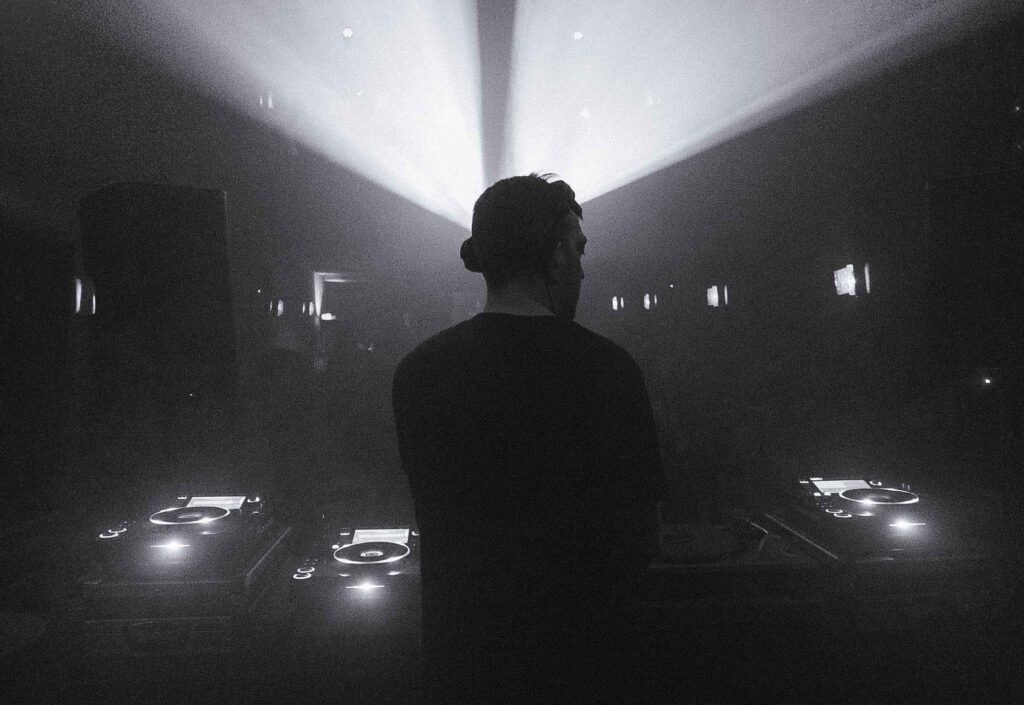
You have not only been producing, but also promoting. You have your own series “Traum” you were running together with your colleagues in your hometown, Osijek.
How did you end up promoting, and what are some of the hardships you’ve had to live through while doing the events?
The idea of promoting came just from necessity. We wanted to do things we enjoyed while visiting many European cities, mainly Berlin, over the years. So, we premiered over the years a lot of underground artists from Paula Temple, DJ Deep, Etapp Kyle, Antigone, Amotik, Lewis Fautzi, Anthony Linell etc... It wasn’t easy at first but eventually we got the trust from the audience. Unfortunately, Covid - like everywhere, made unrepairable damages and most things seem like they are one square one. Just like with TRAUM series, at the moment it’s on a hiatus and who knows if it’s ever gonna be back and in what form.
It seems that the recent resurge of the ‘90s trance sound has not made a mark on your output. What do you think about the global state of affairs of Techno at the moment?
Well funny thing is that first event I attended was named something like Techno vs Trance, so I was exposed to that Trance sound at the start and I kinda get why it’s getting popular again. It’s an easy way in for people to get into electronic music and partying in general. It’s all very cyclical and best music is always made and listened in those mid points, in those small windows when things are just about to blow up and before it gets so popularised that you need all sorts of gimmicks to get more and more people into this machine that is supposed to be underground electronic music.
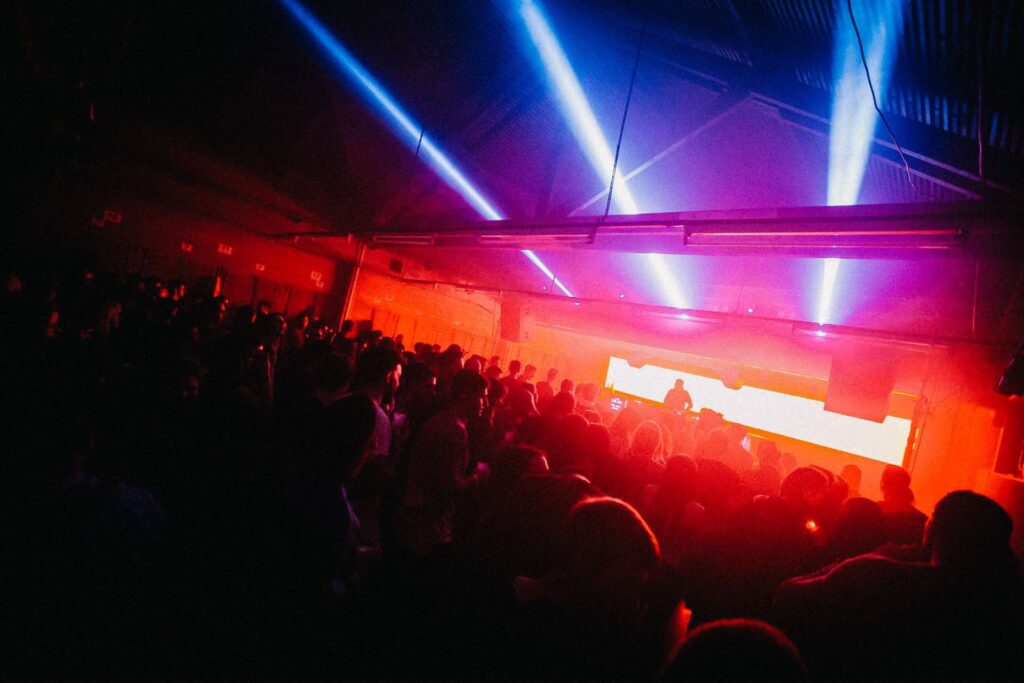
Let’s talk about your label, Secession. You seem to be really active with it on Bandcamp. At the same time, you have already released three 12” vinyl EPs. What is the thought behind the aesthetic of the label and what are your plans with it? Having your own label means you get to curate your output. Do you have a strict direction in mind? How about the other label you were affiliated with - Out Of Place?
Out Of Place is the first label I started with my ex-partner Insolate that I’m not a part of anymore for a lot of reasons. Simultaneously, I started Secession records to push myself into the direction I wanted. Collaboration is nice but you really learn a lot about yourself when you are the only one behind the driving wheel. Secession in its name already had the term withdrawal from a larger entity and it also represents an art movement closely related to Art Nouveau that is very prevalent in my hometown Osijek where I grew up. So, this was a very natural and easy choice for me especially in terms of aesthetics since all the visuals are coming directly from my hometown.
In terms of music and medium, Secession started as a vinyl & digital label but with the steady rise of vinyl releasing labels and stagnation or even a decline in number of pressing plants, the time to press a record went out of control. So, last couple of releases on Secession went as digital only and to be honest they made as much, or even better, impact as their vinyl counterpart. It probably has to do with the way I’m handling those, the same I would treat a vinyl release. High standards and a quality curation. Not only for myself but for the artist themselves. I want to release good music for the artist itself just as much as I want it for the label.
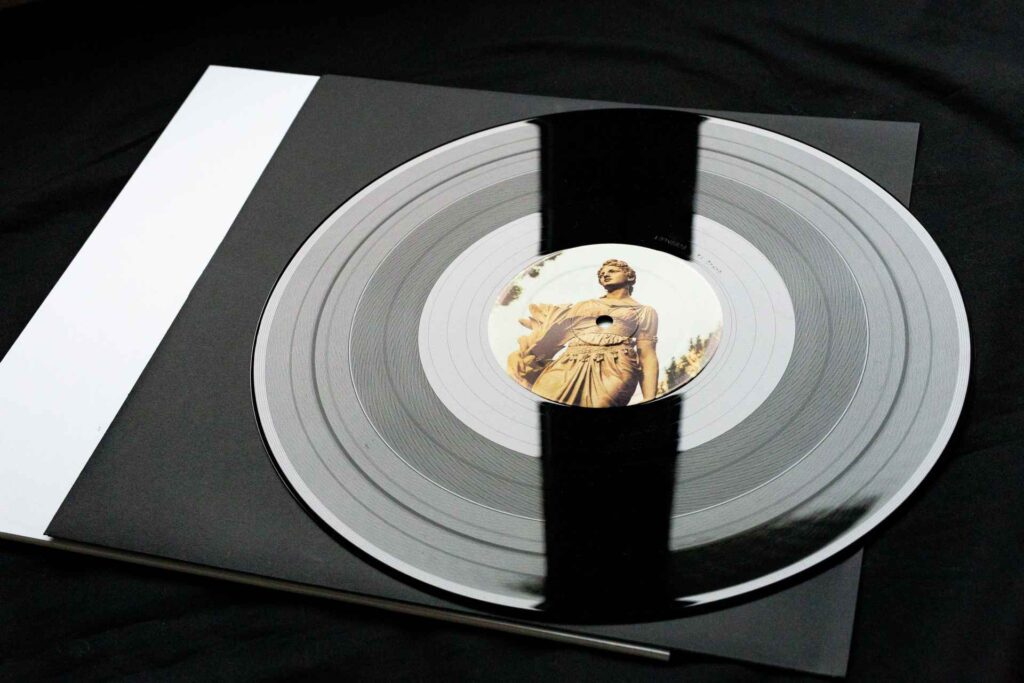
We at Technokunst have a strong focus on vinyl as a carrying medium for music. We are also glad to see that you keep pushing vinyl releases. What are your thoughts on vinyl as media and how do you see the future of releasing records? This is especially interesting now that digital distribution seems “easy” while we hear vinyl releases may end up getting delayed on multiple stages of the process and by as much as 6 months.
Of course, but I’m a firm believer in logic and if keeping certain medium delays everything and actually has more cons than pros I will back off from it for a while until it starts to make more sense. Nothing in my life was chosen based on what’s easier… quite on the contrary, rather what is more logical at the moment. So, vinyl will still play a big part in Secession but in a way that has more sense and there is a plan for the next 12” ready to be executed.
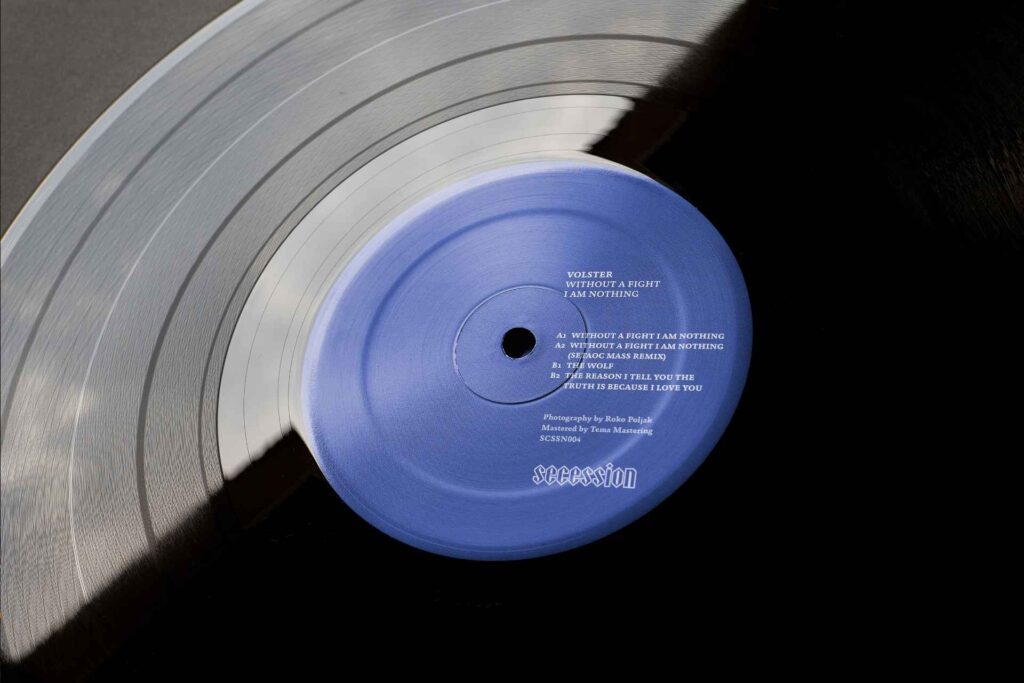
What is your method of production? Do you use a mixture of analogue and digital or instead focus on either of them? How does your workflow look like? Care to share a few photos of your studio and favourite gear?
It started primarily as digital only but then it evolved into a mixture of digital and analogue with couple of rhythm machines, synths and pedals. But lately due to different reasons I found myself doing almost everything in DAW. I just went into this rabbit hole of plugins that are fantastic at the moment and this is where I feel comfortable now. Elektron still plays a part of it, with Digitakt as my main rhythm machine.
What is in focus for the Volster project right now? Promotion, production, or playing?
I always did a lot of things at once which worked ok but now, I’m planning to get in the studio more and dedicate my focus there.
Can you share some of your favourite music – current or past, that you wish readers of this
interview heard?
I listen a lot of different kind of music and there may be days without me listening to anything Techno related. The last thing that I’m in awe of and that I regularly play in my car is the new Kendrick Lamar album, which is so honest and truthful that is very inspiring to me. Also, you can check out my Home Selection playlist for Oecus on Spotify to get a feel of what I usually listen to.
Technokunst asks: Orbe
Hey Fernando, thank you for accepting our interview request! Technokunst is a collective of artists
who embrace events with the tradition of vinyl dj-ing as well as of modular live sets. Orbe as a project
therefore has been on our radar for some time now - we really resonate with the work you’ve been
putting out.
Can you tell us a little bit about your background and how you met with techno? What are
some of the initial influences that shaped your sound? Is there anyone out there that helped
you grow and learn, or did you pick it up all by yourself?
It is my pleasure to participate in your project, thank you! I was born in a town called Algeciras in
southern Spain, in the Andalusia region. I started listening to electronic music through my older
brother, mostly Breakbeat and Drum & Bass.
When I moved to Seville to study audio engineering, I met a guy called David – still a good friend to
this day - who was the one who led me into Techno music for the first time. When he showed me a
Richie Hawtin set, I was blown away.
Later I continued my sound engineering studies in Madrid, and met Ruben De Felipe and Eduardo De
La Calle, who both greatly influenced the type of sound that represents me today. They would always
bring home new music from Drexciya, Juan Atkins, Jeff Mills, and then I would lock myself in the
studio influenced by all those sounds that were new to me.
The Iberian techno scene has been at a constant high point for some time (at least until covid hit)
How is your connection to your fellow Spaniard and Portuguese producers?
The relationship has always been good and healthy. In Madrid, - where I live now - there are fantastic
producers with good record labels that bring very positive things to the Techno scene. We are all
good friends with Ocktawian, Tadeo or Psyk, and we share projects.
The same thing stands with Portugal. They are humble people, wanting to work toward contributing
positive things to the scene. I would mention the guys from Hayes Collective, Pedro Rebelo 'Ruuar'
or Gustavo, the promoter of Neopop.
photo credit: Pablo Gallardo
Some of your fellow producers from the Spanish scene left their homebase and moved to Berlin
(Refracted and P.E.A.R.L. to name two of them). Have you remained in Spain and do you have
any plans to move around?
I love Spain and I don't want to move abroad :)
How do you feel about the current state of affairs in the world of techno? It seems that the 90s
has made a comeback and lots of labels shift their sound towards higher bpm to accommodate this.
Yet we can see hear that the tempo of your releases has remained in the lower 130s.
I don't think justice is done to artists who work well in the studio, who make good music, who have
good labels that bring positive things to the scene. Basically, an unresolved imbalance exists. Some
with very little input achieve a lot, and others, with a lot of work, achieve little. It is clear that the
industry evolves, the networks, the image ... okay, I respect it, I understand it and accept it, but I
believe that there are certain values and pillars that should not be ignored. The industry has to evolve
from a basis that in my opinion is immovable.
Regarding the BPM, I think it is a trend that will soon end and it will go down again, and then it will go
up again, it is a continuous cycle.
With the release of Transhuman EP on TOKEN, it caught our eye that you were referencing the work
of Fereidoun M. Esfandiary - a transhumanist philosopher. Does futurology interest you as an
intellectual movement or is this more of a stylistic choice that complements techno well?
I have always been attracted to the afterlife, and to the thought of what the future may bring in terms
of technological and other advancement. For me, Techno and modular electronics are a way of
contacting the future, the avant-garde. The EP on Token Records is called 'Transhuman' for this
reason.
Token 102
We see that Orbe Records is mostly a means to release your own music with full creative control, but
we also see some guest appearances - such as Spanish techno veteran Eduardo De La Calle. How
did you arrive to the decision to start your self-titled label, and how do you curate the output
of Orbe Records?
After many years of making music and maturing my sound, I was confident enough to launch my own
label with my own concept. I tried going this way to be able to develop a catalogue without an A&R
assessing what was good and what wasn’t. It was a little over 6 years ago that I launched it as a vinyl-
only label. This is a concept I ultimately decided to change in 2019, since there were almost no
Techno DJs left that played vinyl. I apologize to the followers of the label but I had no other choice to
keep things going.
I am already preparing the next release, number 012, but all pressing plants have waiting lists until
next summer... :(
Your most recent release on Orbe Records – “Psy Visionary” was released as a lengthy LP on a span
of 4 x 12” vinyl records. This is becoming increasingly rare and seems like a bold move. Can you tell
us a little bit about this album and how you see the market for further releases like this? Do
you see this as a concept album like “Interplant” or more of a collection of tracks that describe
your type of sound well?
The idea of releasing this record came during lockdown. I took some machines home and it all went
from there, I made a lot of music that I knew had to see the light of day. It is rare to see a 4x12 album
in the current market, - it is very risky - but perhaps this encouraged me to do it even more. It was a
way to differentiate myself from others. The concept is different from 'Interplant'; in that 'Psy
Visionary'; is more focused on the dancefloor, all written and created using modular synthesis.
How does your production setup look like? Do you prefer using software, hardware, or a
combination of both? Can you show us your studio and your favourite tools for production?
In the studio I do everything hardware-based during sound creation and recording. Once recorded in
the multitrack, I can use dynamics plugins for correction, be it an EQ or an exciter.
My favorite tool is modular synthesis. I also love sampling my own sounds, and do so either with the
Digitakt or the Morphagene synth module, by sending any sound from the mixer through an auxiliary
group output. I love using the Bark Filter Processor by Verbos Electronics and also the Elektron
Monomachine synthesizer. I also use an old harmonizer DSP, the Eventide H3000.
As for gigs, what is your preference, performing live or through dj-sets? More intimate clubs, or
larger venues such as festivals?
I prefer live performances on big festivals and DJ sets in a more intimate club setting.
What is next in focus for the Orbe project? More gigs or more production?
Always both. To have gigs it is necessary to make records. :)
Can you share some of your favourite music – current or past, that you wish readers of this
interview heard?
In would choose Boards of Canada or Brian Eno, music always to relax to.
